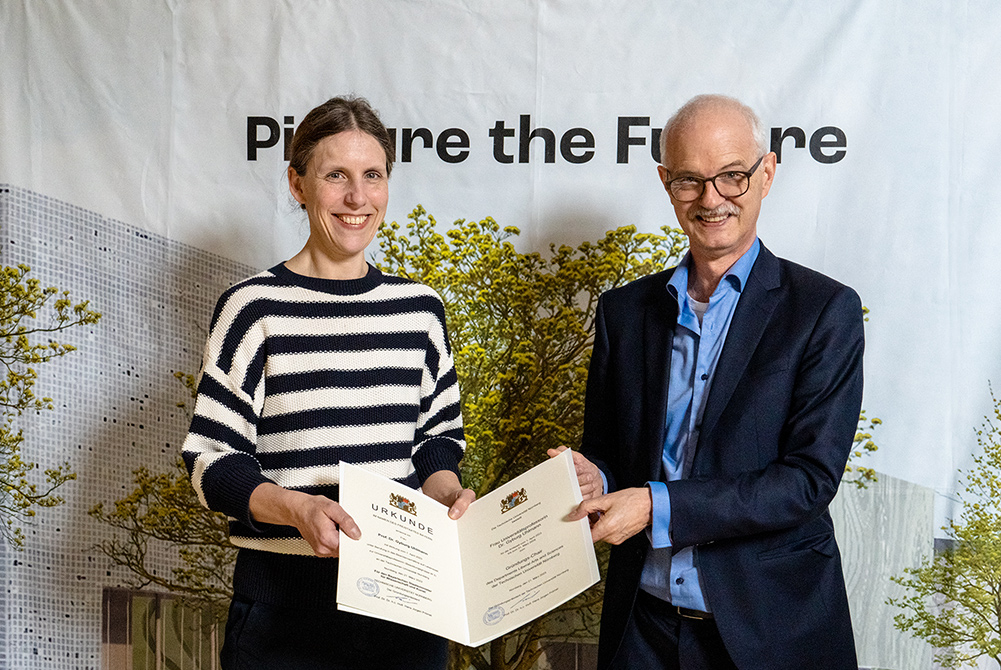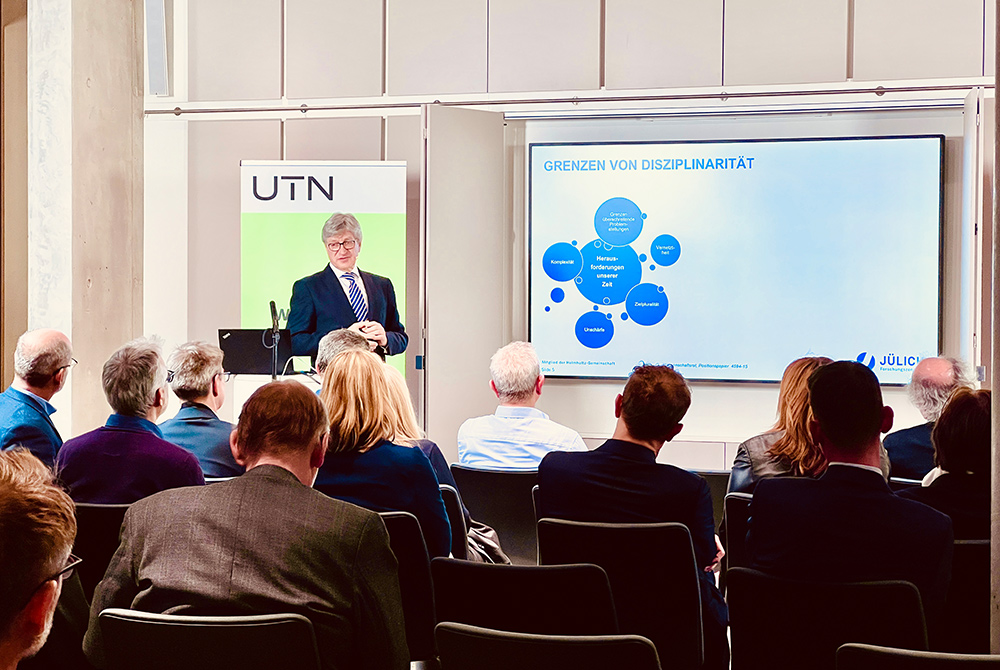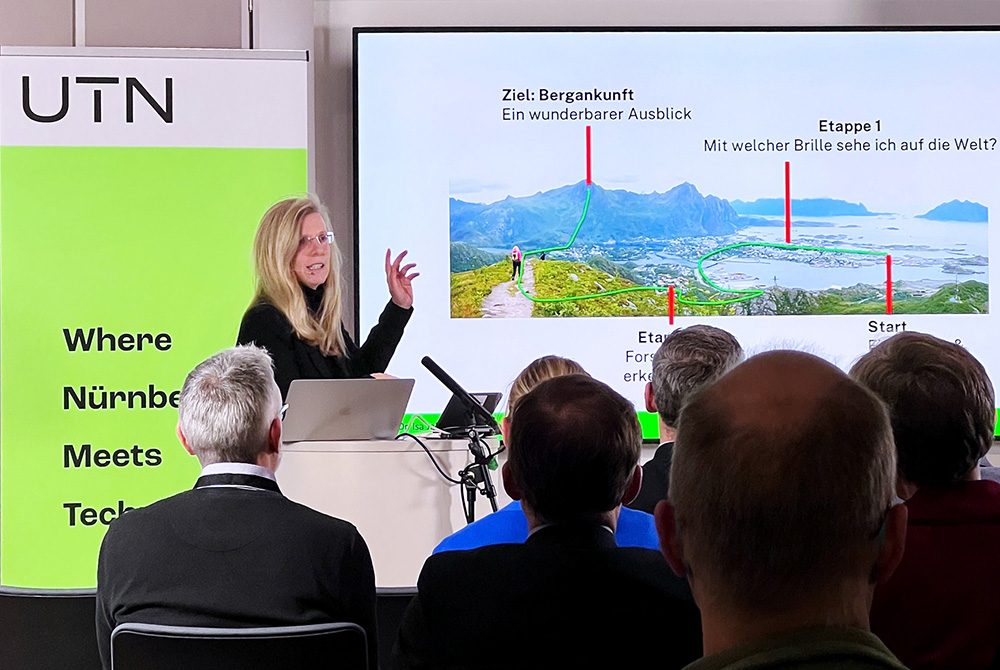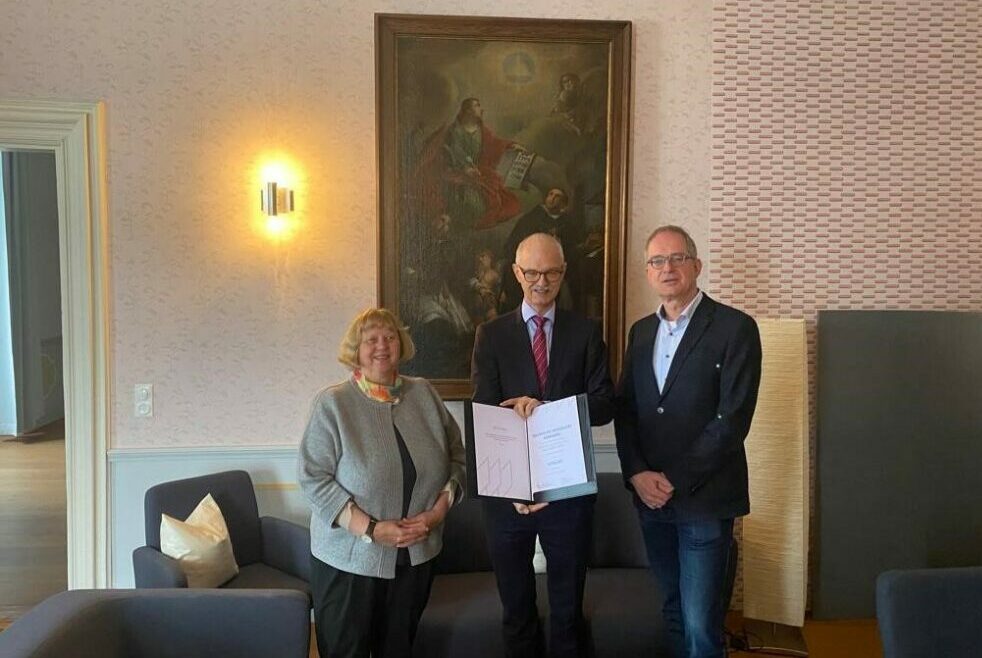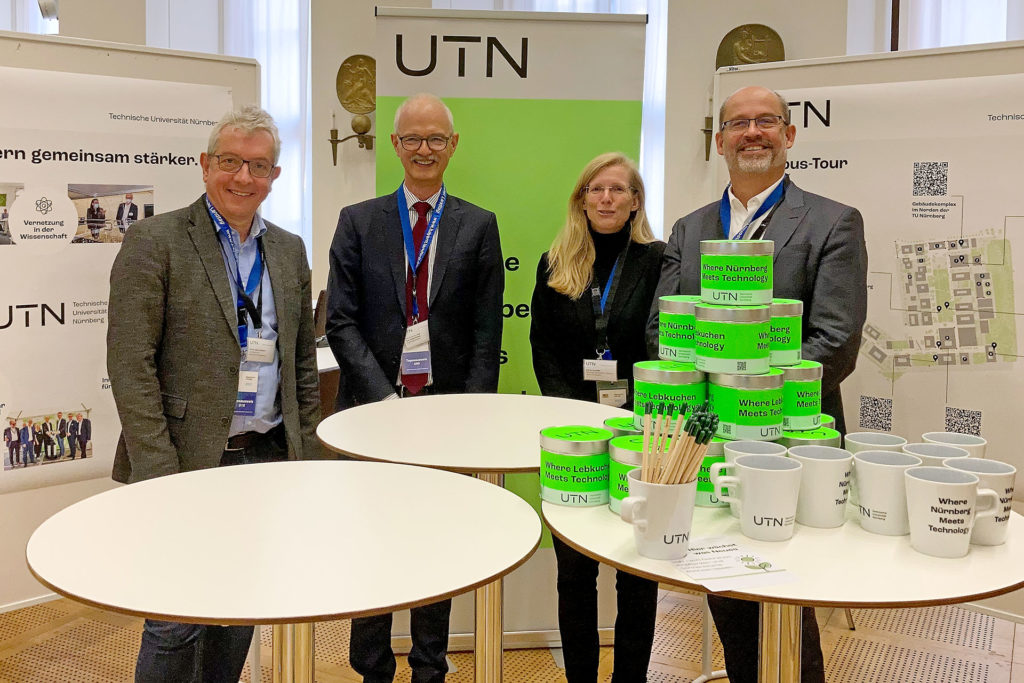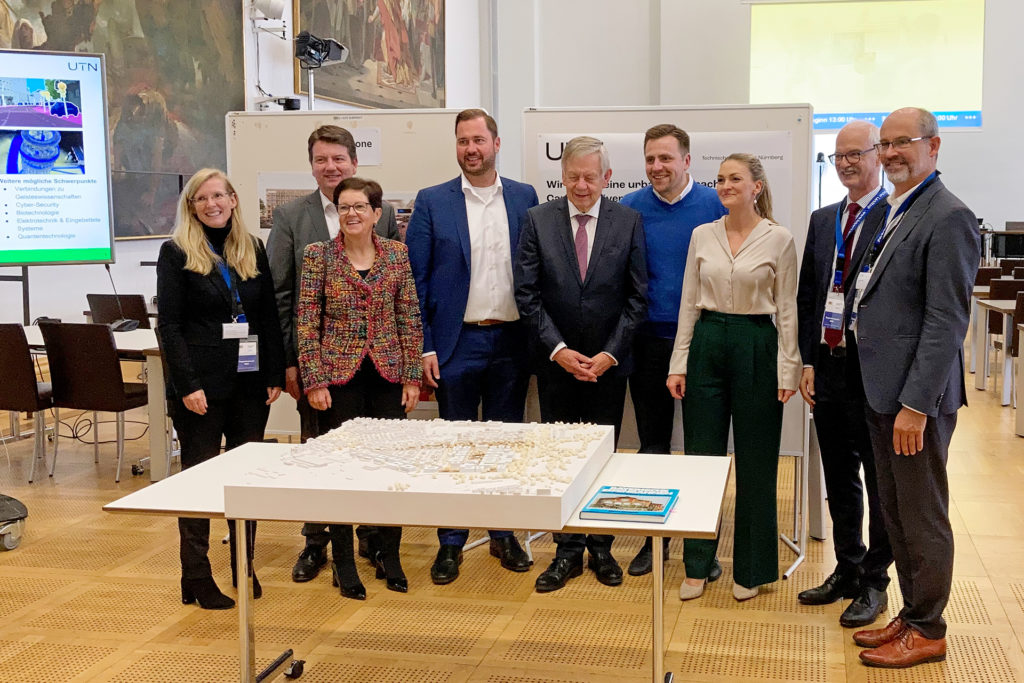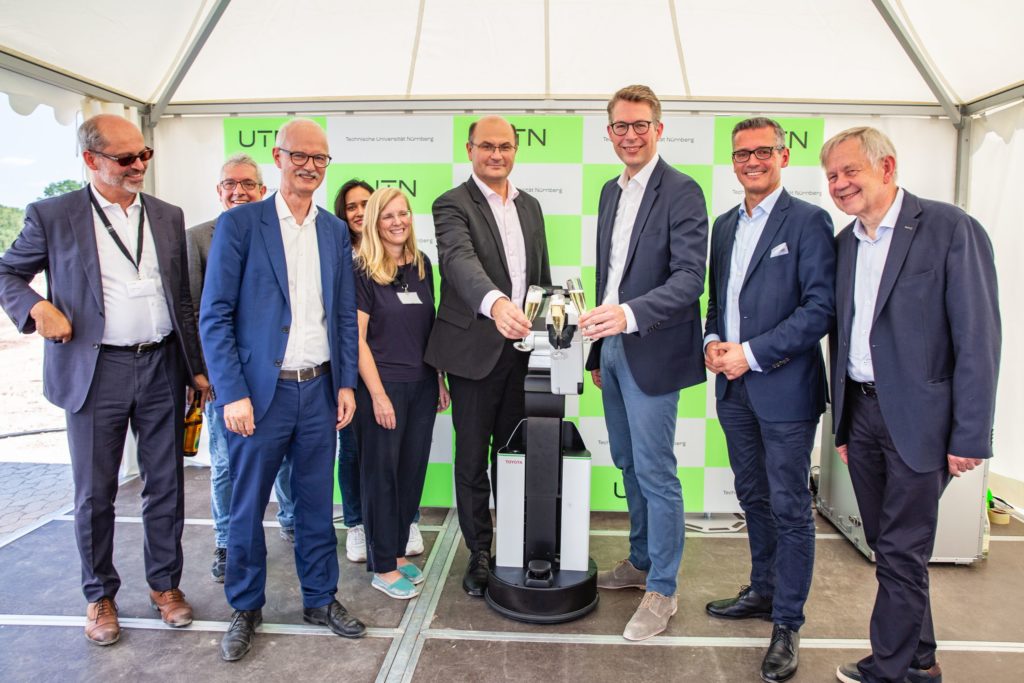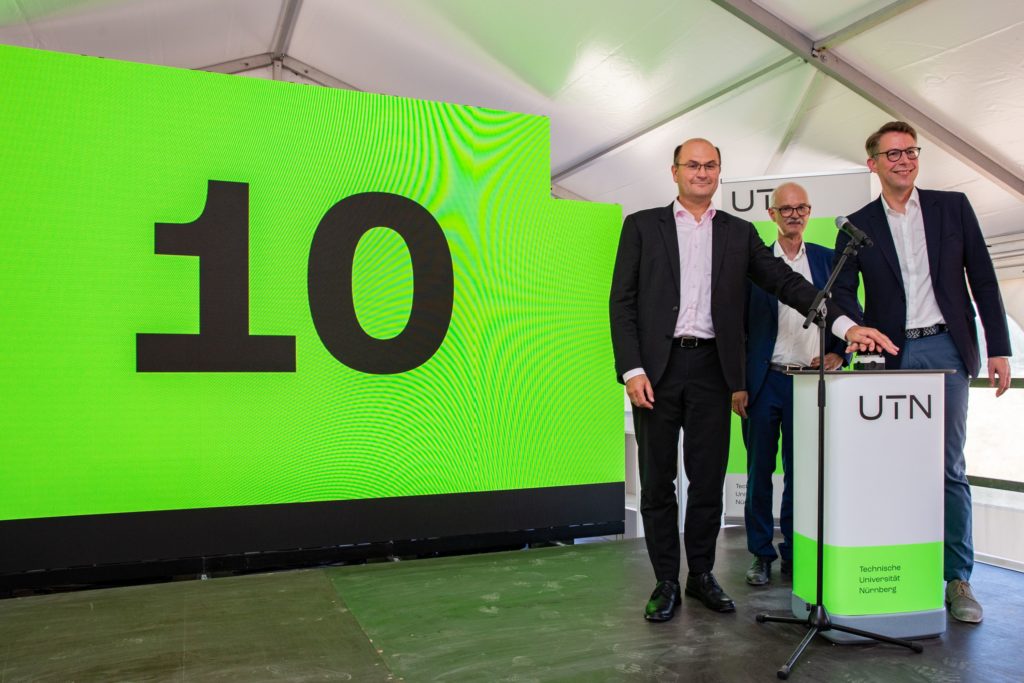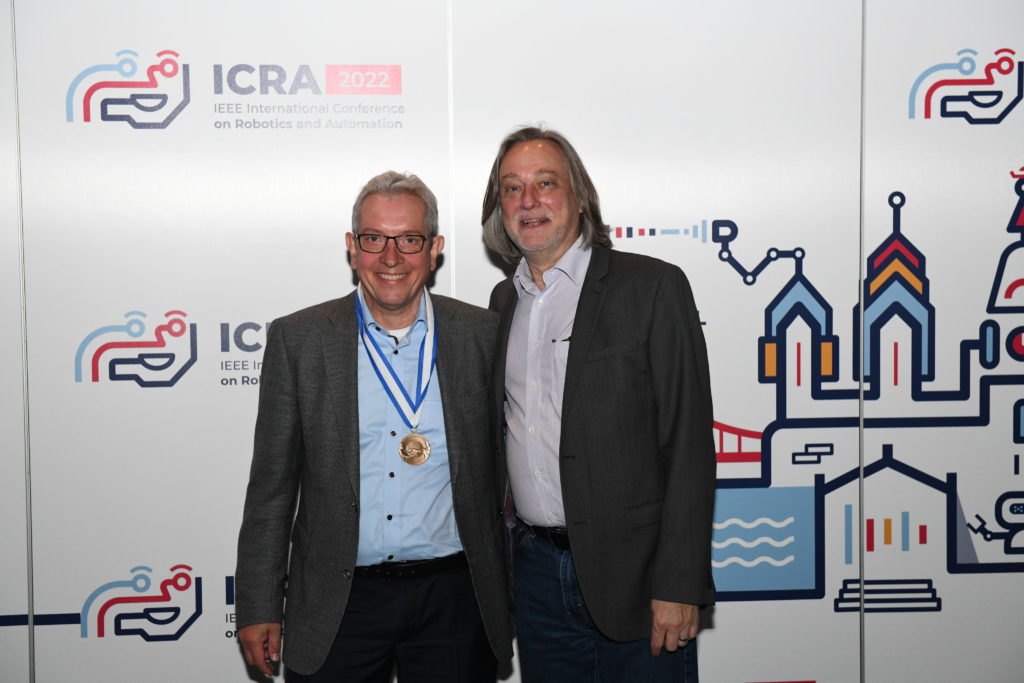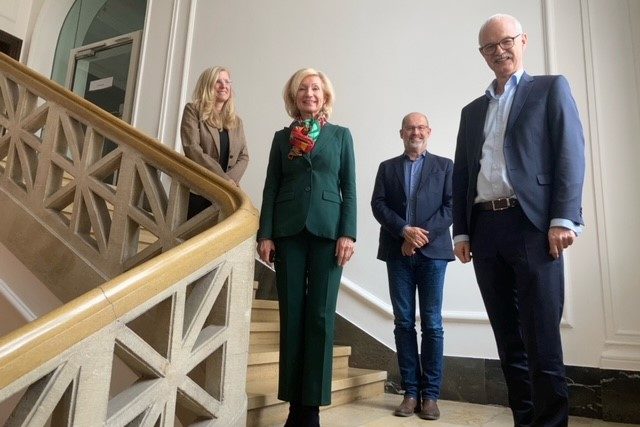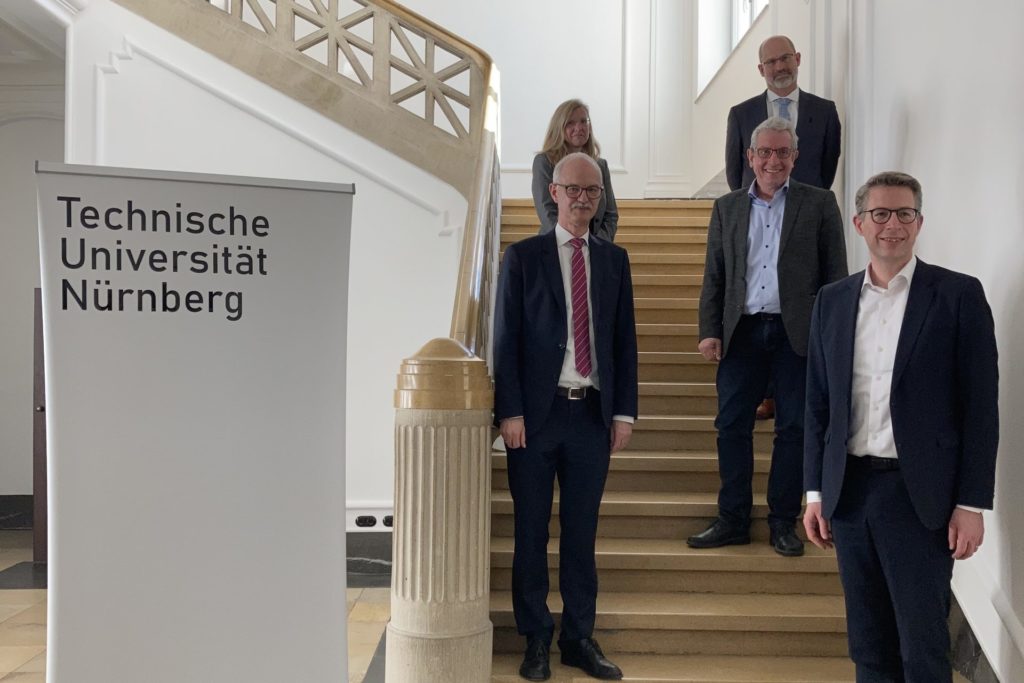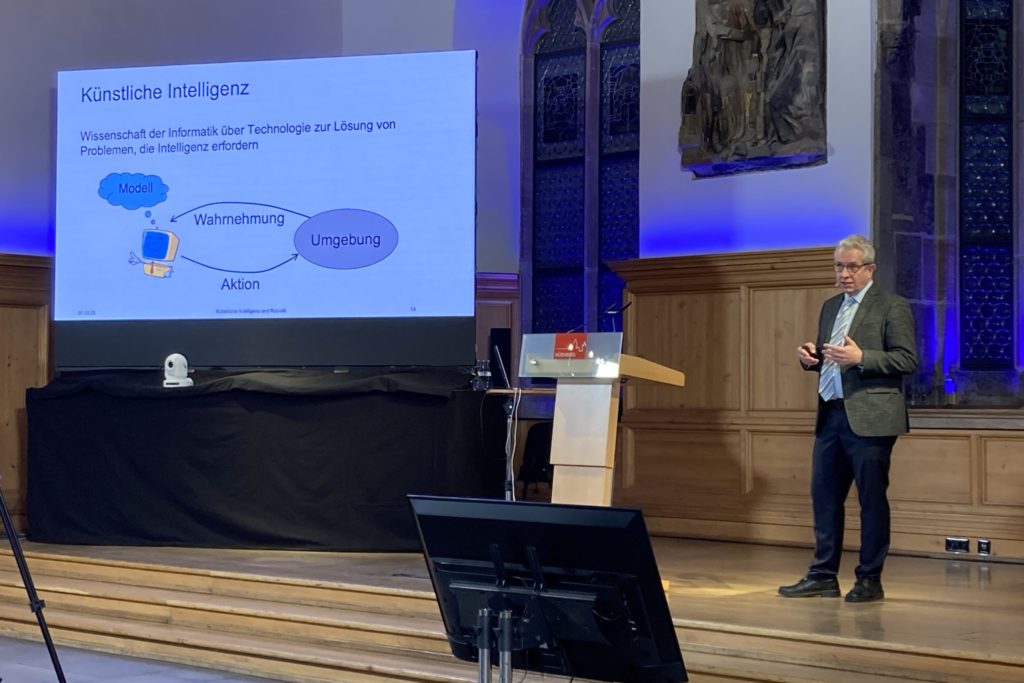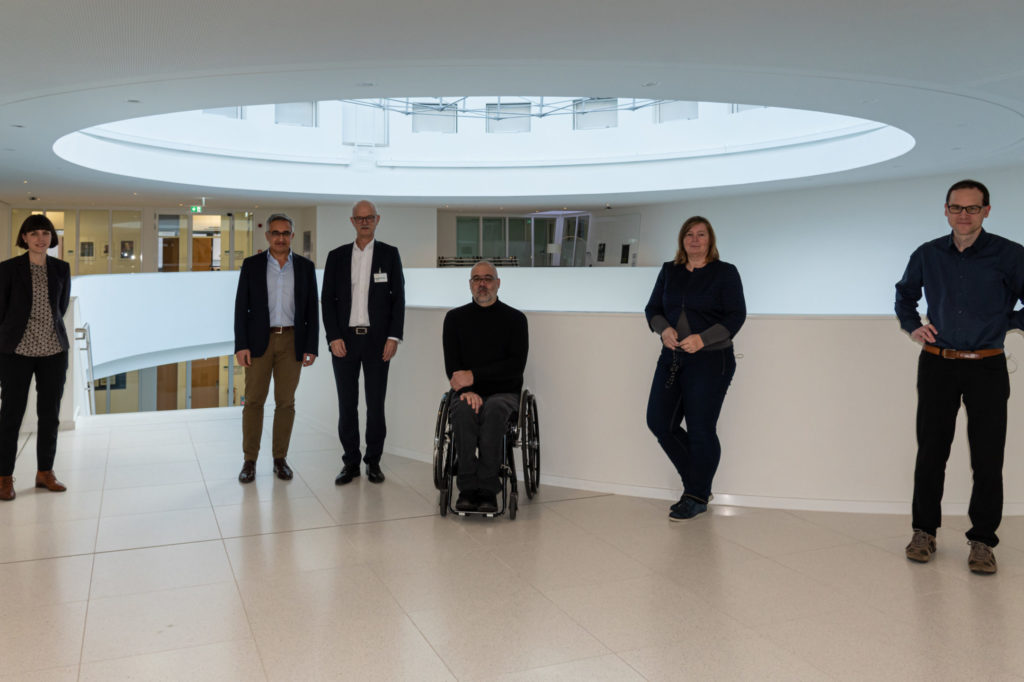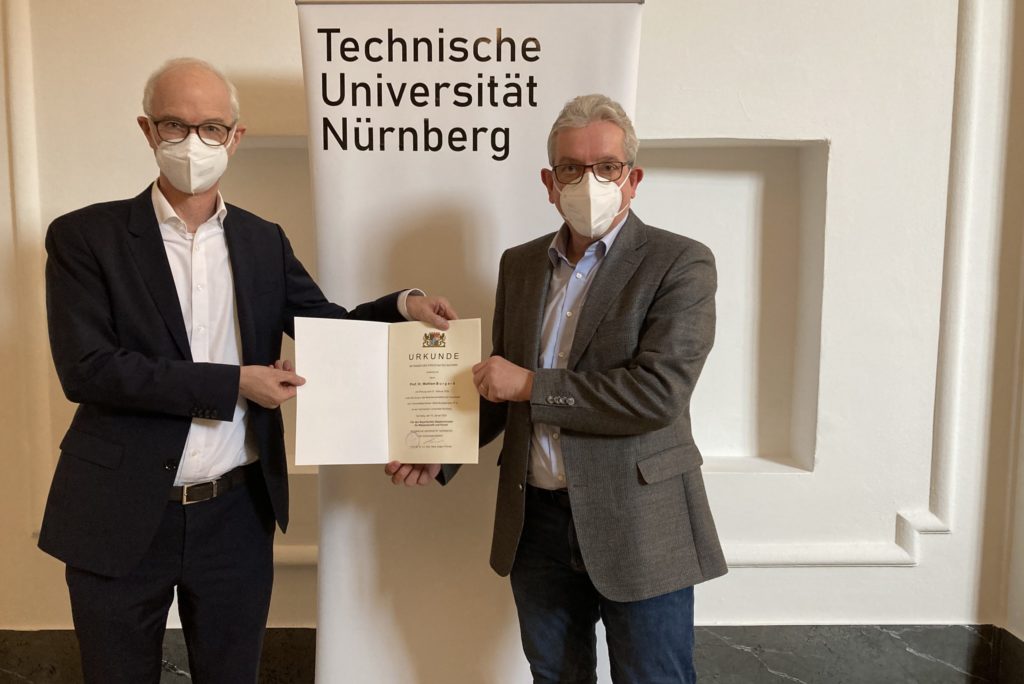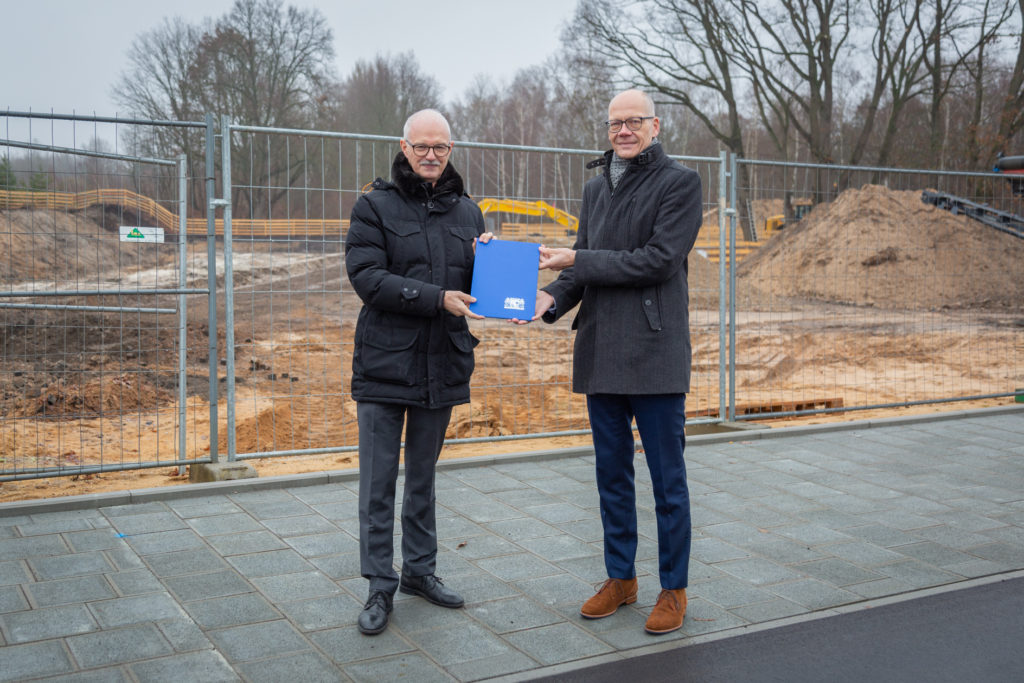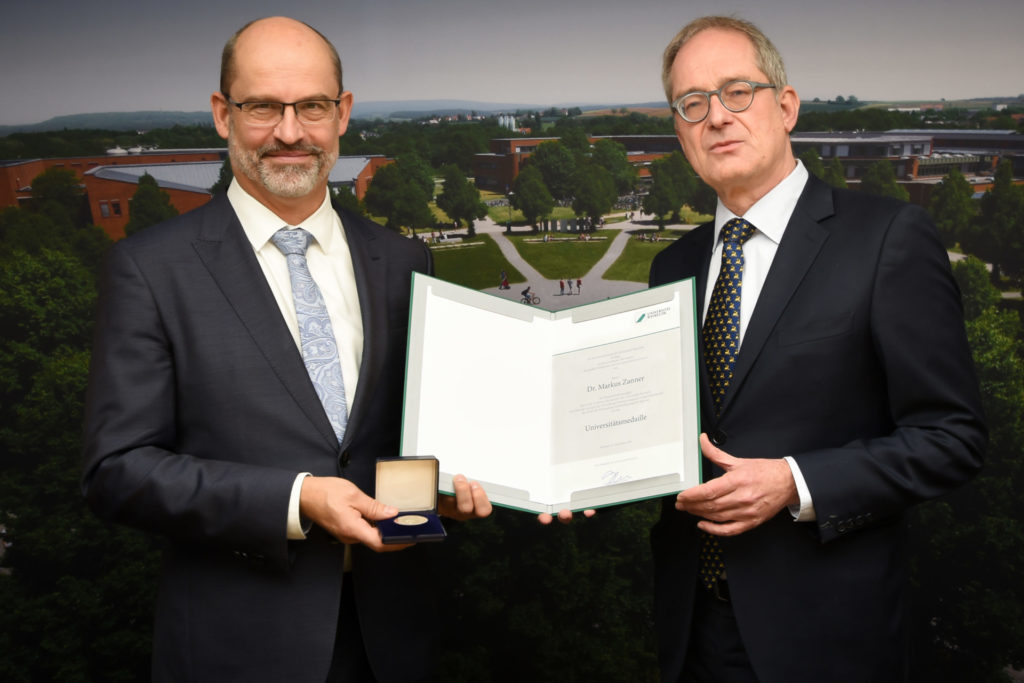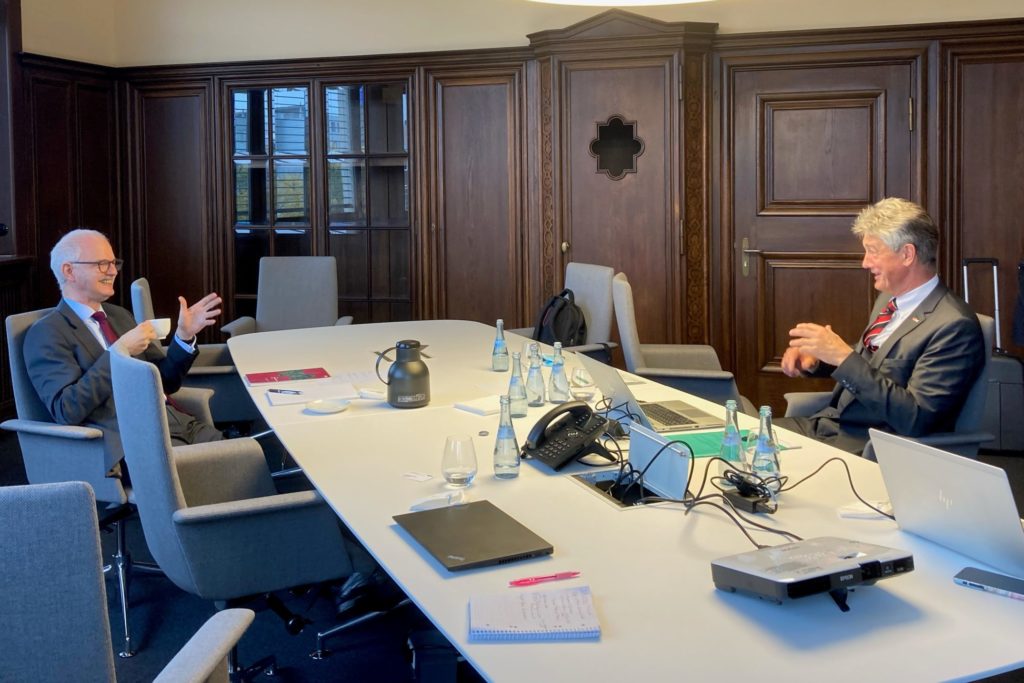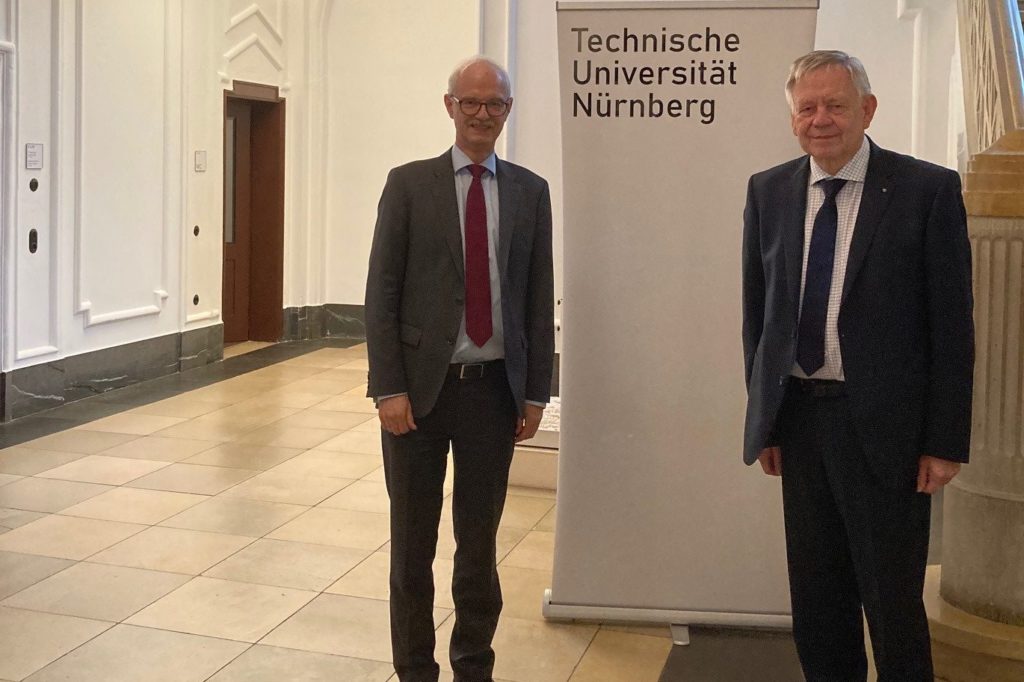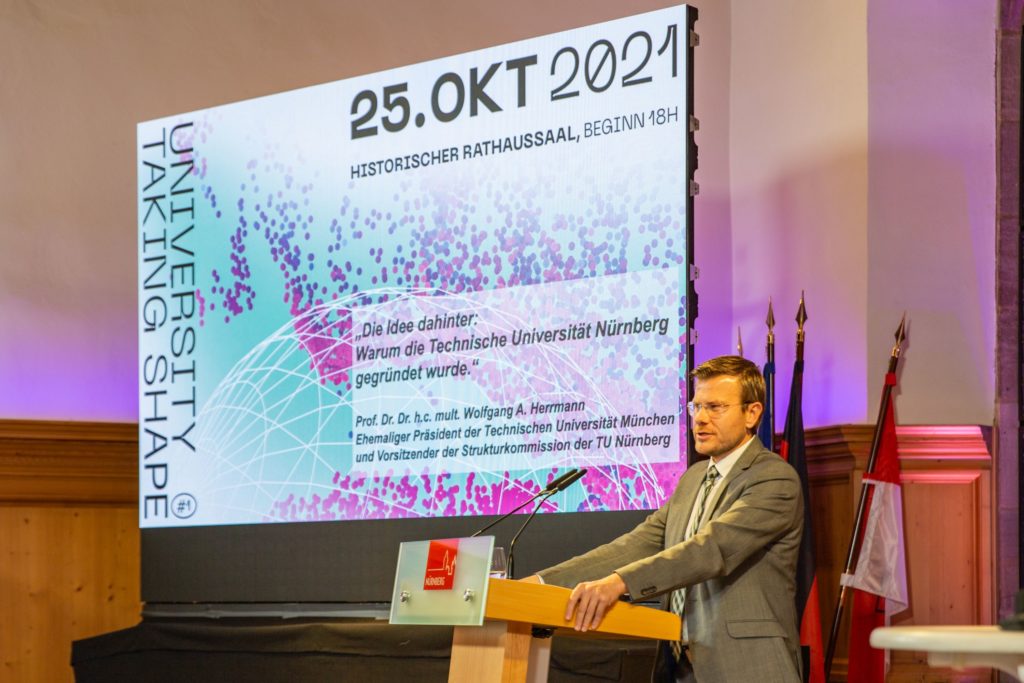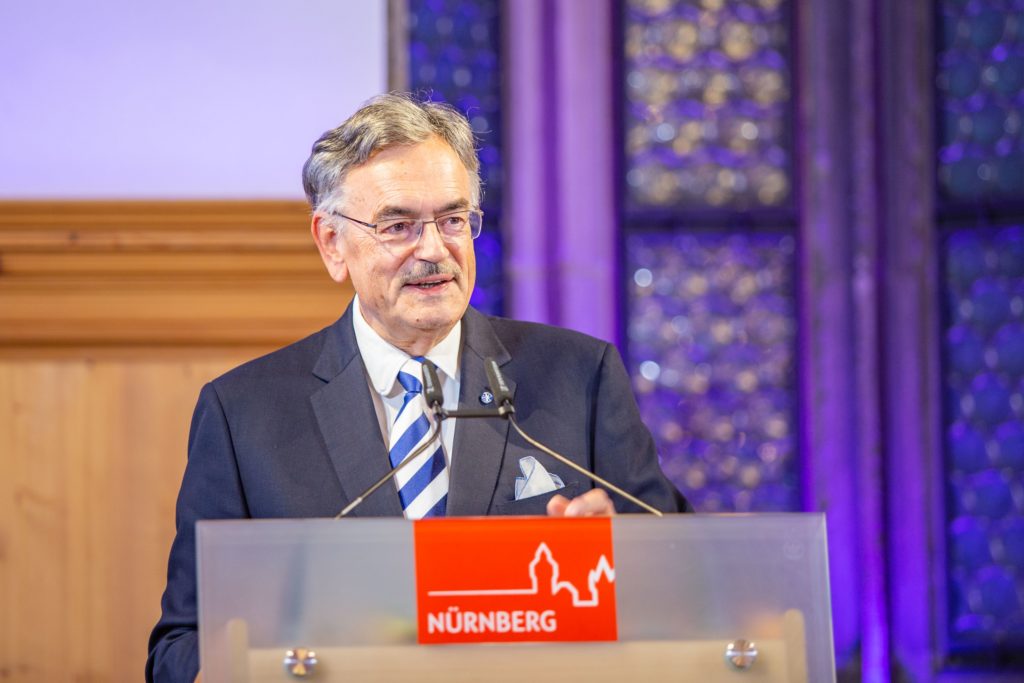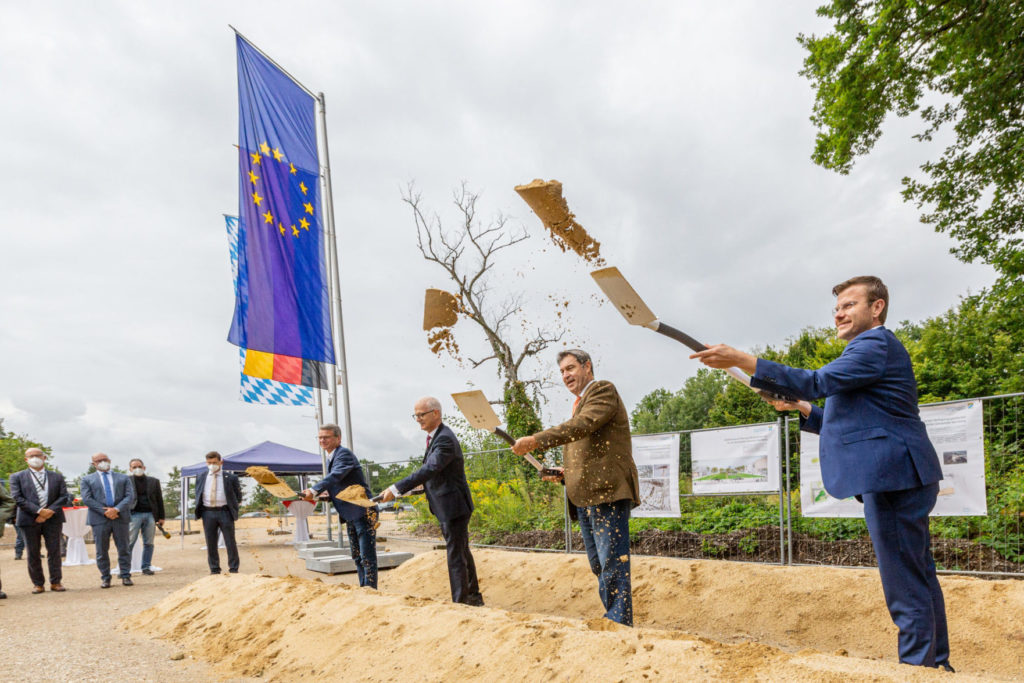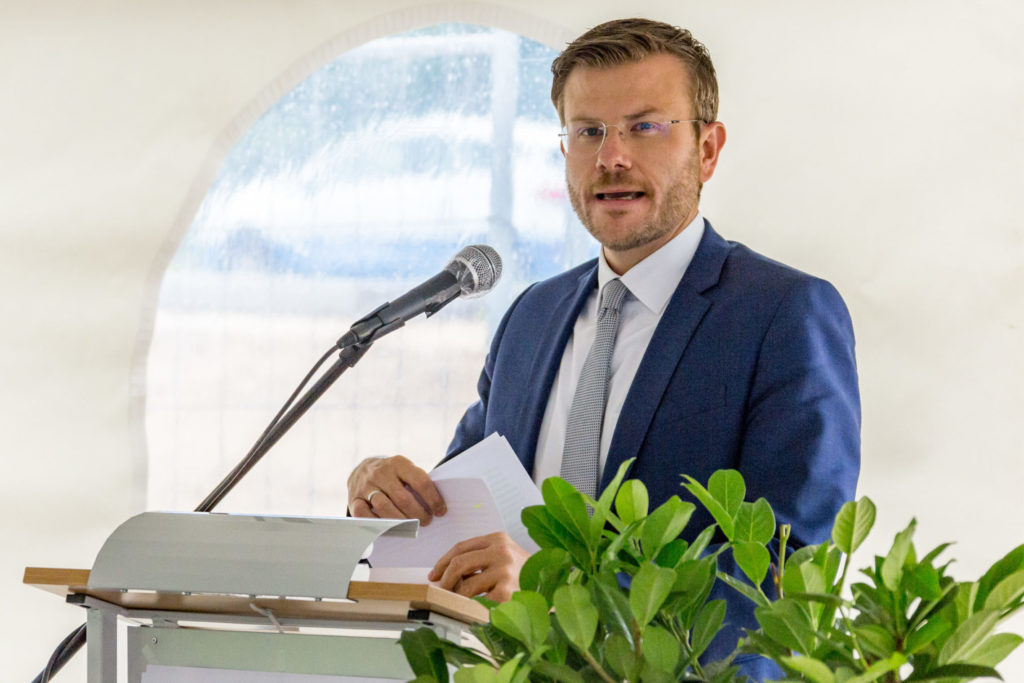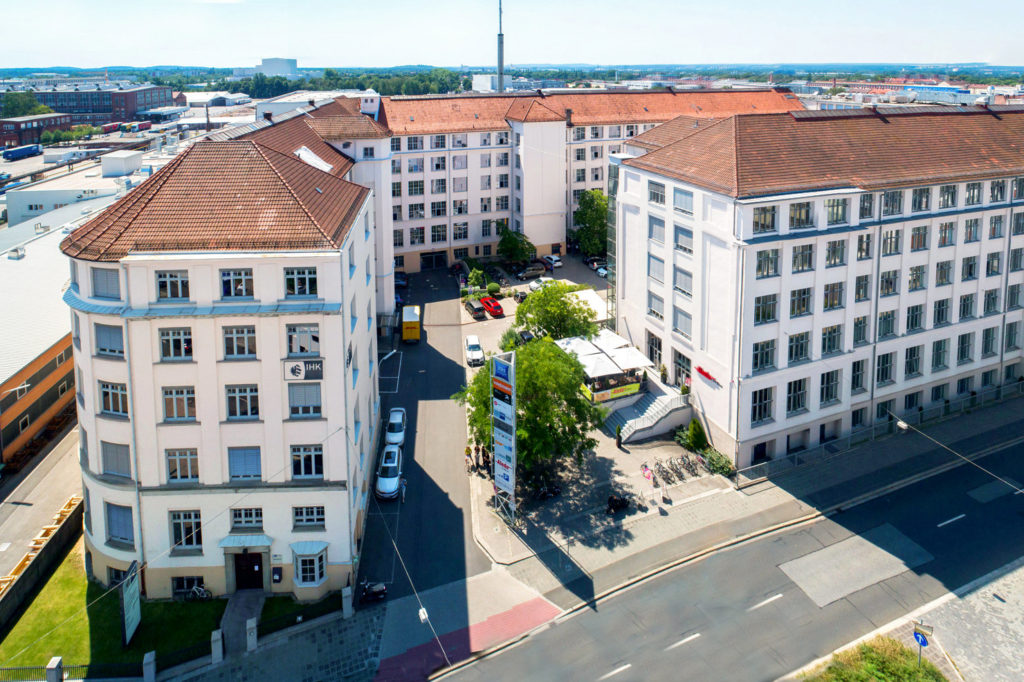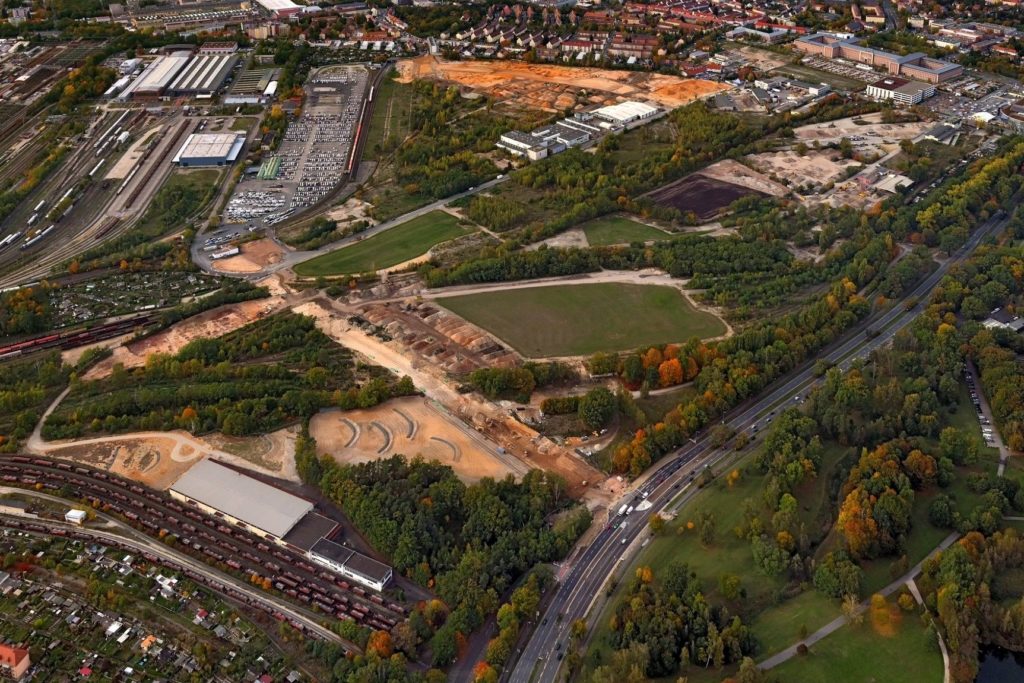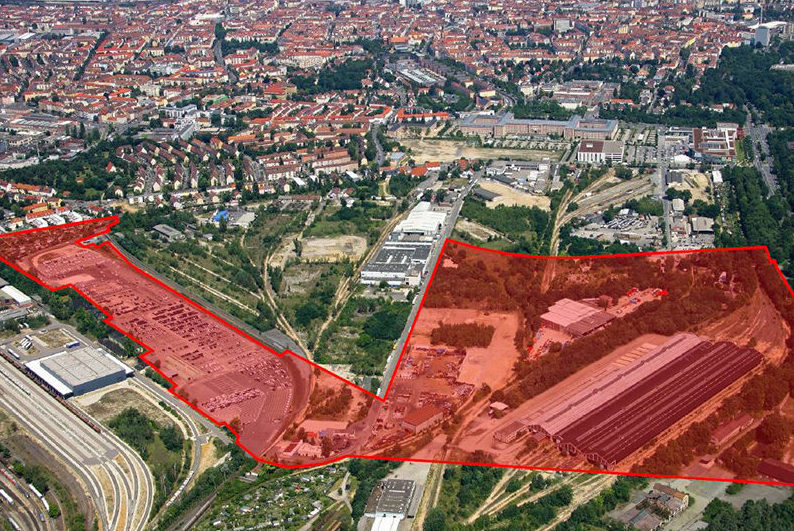2025
From March 13 to 15, the first German Robotics Conference takes place in Nuremberg, bringing together leading German robotics and AI experts. The conference is organized by the Robotics Institute Germany (RiG), of which UTN is a partner.
The University of Technology Nuremberg continues to expand its international research collaborations: In April, a partnership is established with the renowned National Institute of Informatics (NII) through a Memorandum of Understanding (MoU). Located in the heart of Tokyo, the NII is a leading research institution dedicated to cutting-edge research in computer science.
The UTN campus is growing: On April 3, 2025, the Nuremberg Institute of Technology Georg Simon Ohm (Ohm), together with Minister of Science Markus Blume, opens a modular building on the grounds of the Technical University of Nuremberg (UTN). The building is used by the Nuremberg School of Health to house health sciences.
Kanzler Dr. Markus Zanner leaves the University of Technology Nuremberg on April 30. After more than four years of dedicated foundational work, he assumes the role of Secretary General of the Alexander von Humboldt Foundation on May 1, 2025. Dr. Markus Zanner took office as Kanzler of UTN on January 1, 2021 – the official founding day of the university – and has played a key role in shaping its development.
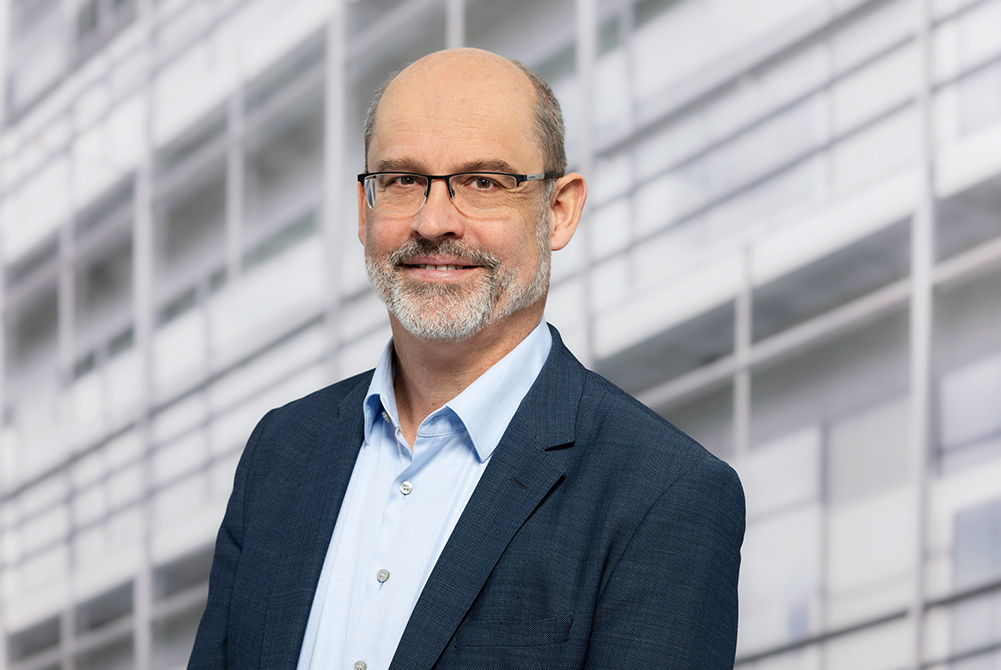
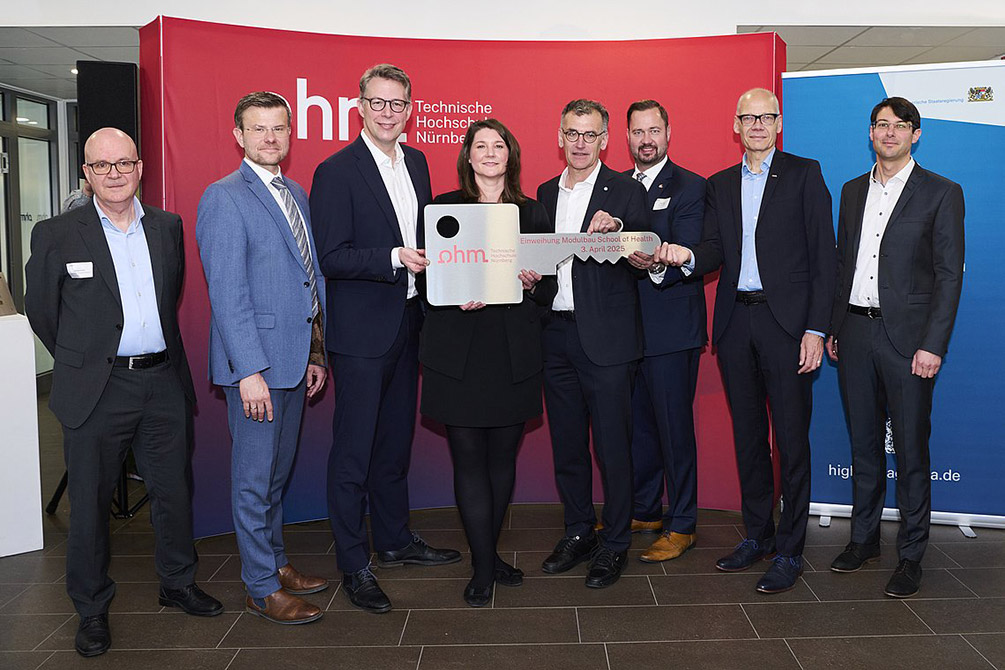
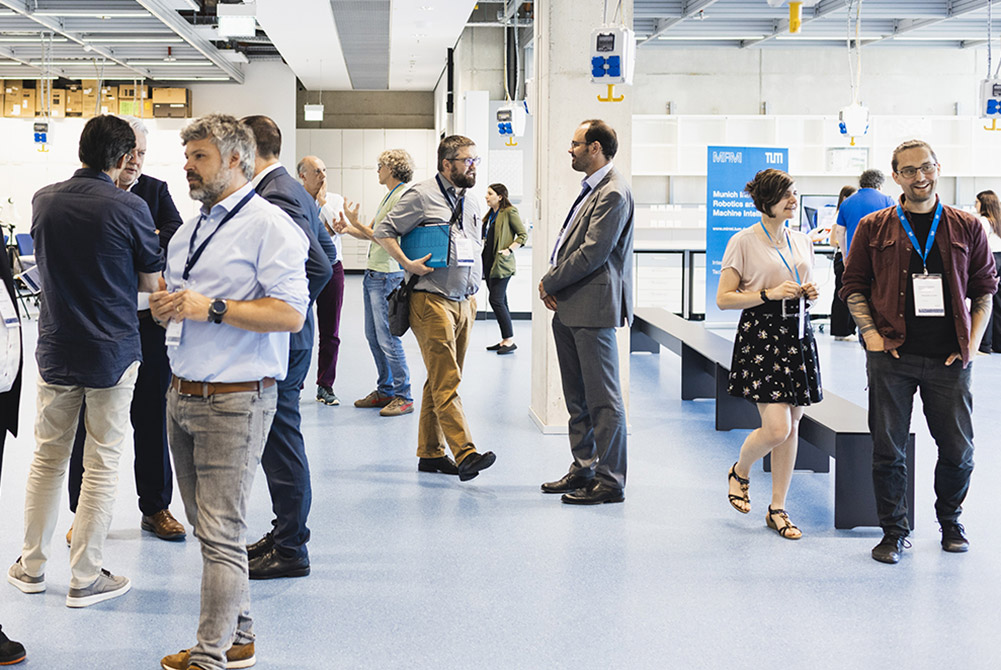
Copyright: Daniel Delang / RIG
2024
On March 1, Prof. Dr. Veronika Grimm takes up the Chair of Energy Systems and Market Design at the University of Technology Nuremberg (UTN).
After three years of successful founding and development work, there will be a change in the office of Founding President on March 31. As part of the focus on AI, Prof. Dr. Michael Huth will take over the office of President from Prof. Dr. Dr. h.c. mult. Hans Jürgen Prömel. Until he takes office on October 1, Prof. Dr. Alexander Martin will lead the UTN as Acting Founding President.
The Minister of State for Science and the Arts, Markus Blume, visits the UTN on April 10 to hold in-depth talks with Prof. Alexander Martin after his inauguration as Acting Founding President. Afterwards, Blume meets UTN employees to answer questions about the new focus on artificial intelligence.
On 2 August 2024, Albert Füracker, Bavarian State Minister for Finance and Home Affairs, and Professor Alexander Martin, Acting Founding President of the UTN, signed a declaration of intent to initiate a comprehensive cooperation. This cooperation aims to achieve a significant objective: integrating artificial intelligence (AI) into public administration. The integration is expected to enhance the efficiency of tax administration, reduce costs and expedite processes for taxpayers.
With effect from October 1, Prof. Dr. Michael Huth has taken office as the new Founding President of the Technical University of Nuremberg (UTN). He is moving to the UTN from Imperial College London, one of the top 10 universities in the world. At Imperial, Prof. Huth was Professor of Computer Science, Head of the Department of Computing.
On October 18, the University of Technology Nuremberg opened its first building on the new campus together with Minister President Dr. Markus Söder and State Minister for science and the arts Markus Blume. The “Cube One” is characterized by its flexible usage options and sustainable construction.
The Technical University of Nuremberg is advancing its vision of future-oriented, interdisciplinary research with a focus on artificial intelligence. In November, the Founding Steering Board approved the renaming of the university’s first two founding departments. The technical department “Engineering” will be refocused as “Computer Science & Artificial Intelligence,” while the humanities department “Liberal Arts & Sciences” will be renamed “Liberal Arts & Social Sciences.” Additionally, the establishment of three new departments is planned for the coming years: “Biological Engineering,” “Mechatronic Engineering,” and “Natural Sciences.”
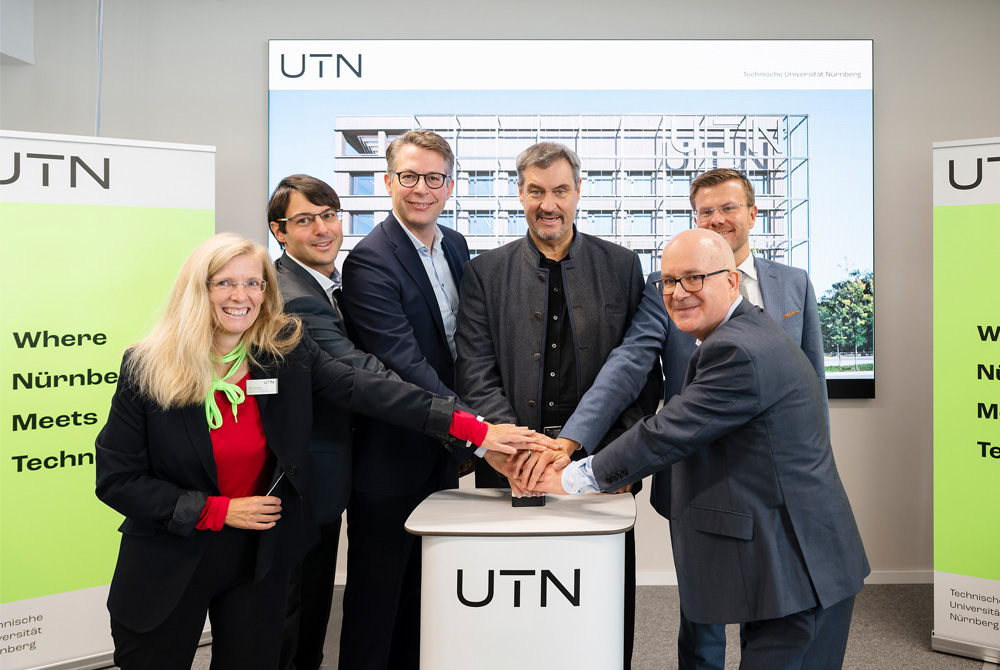
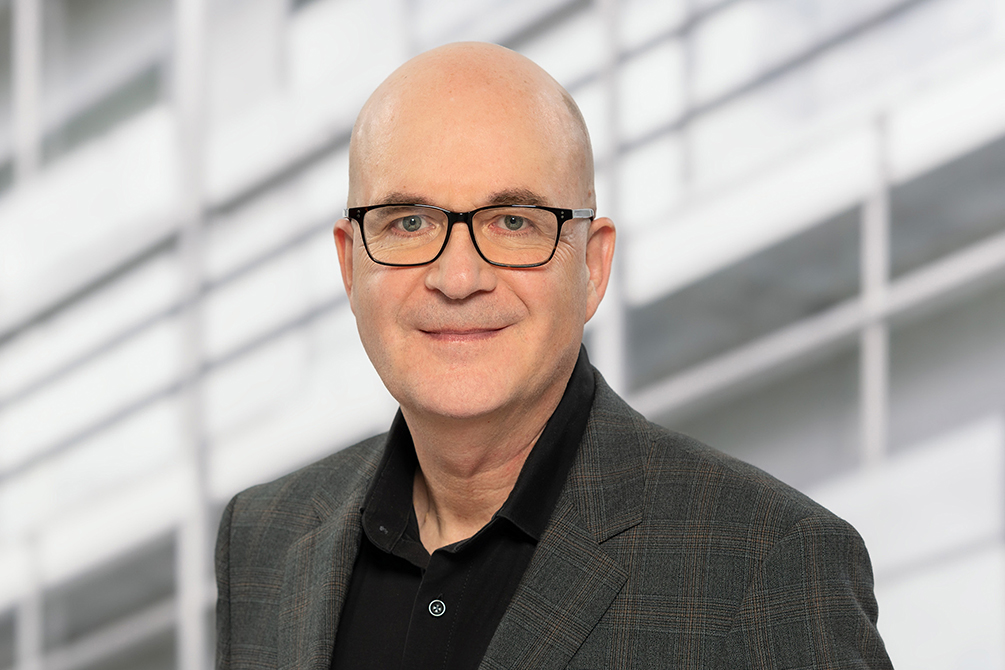
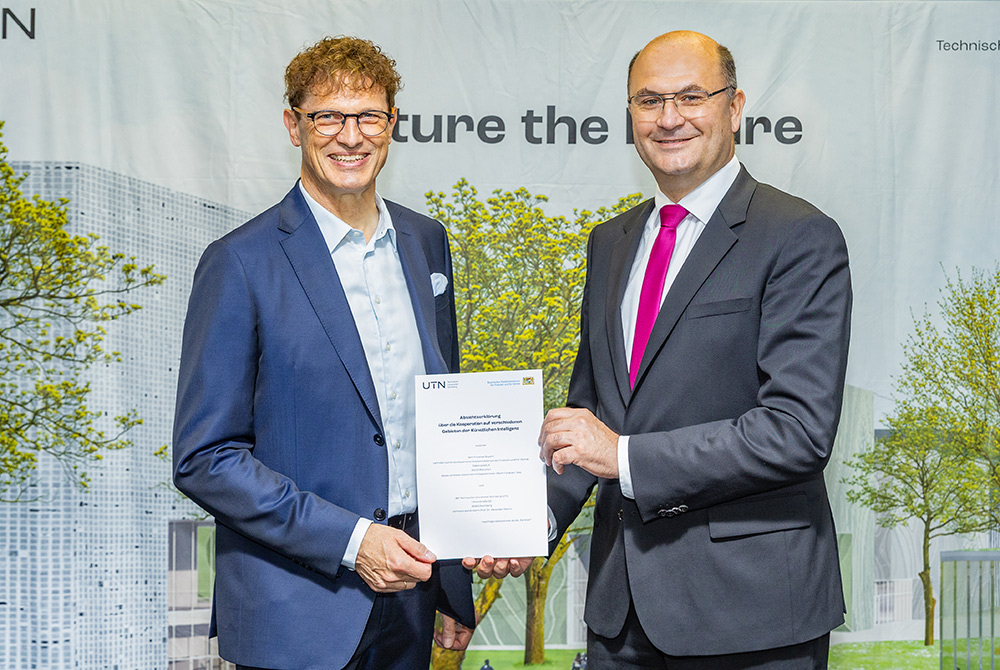
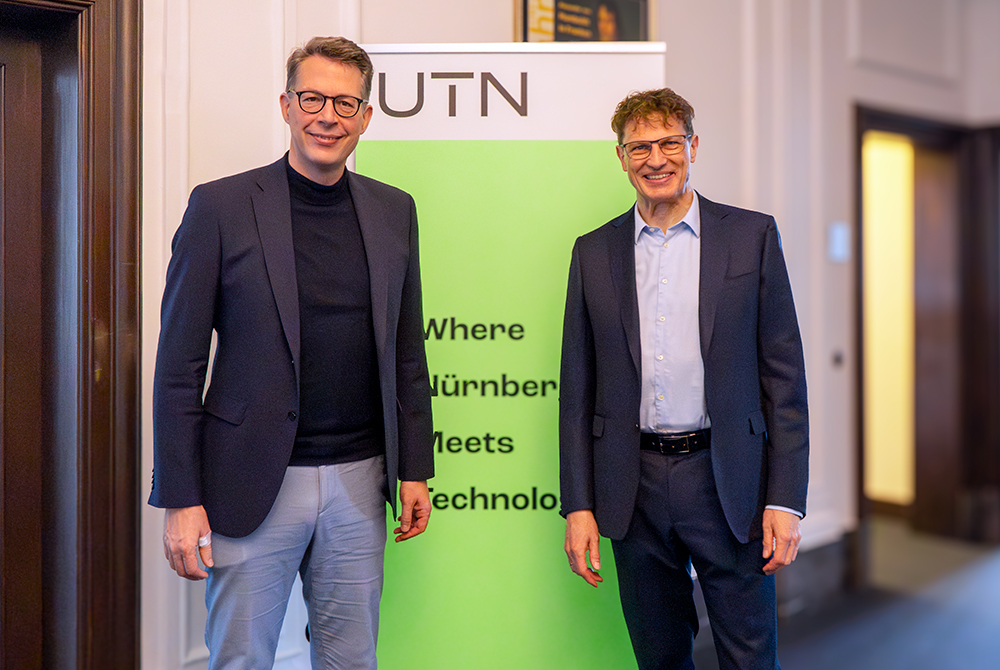
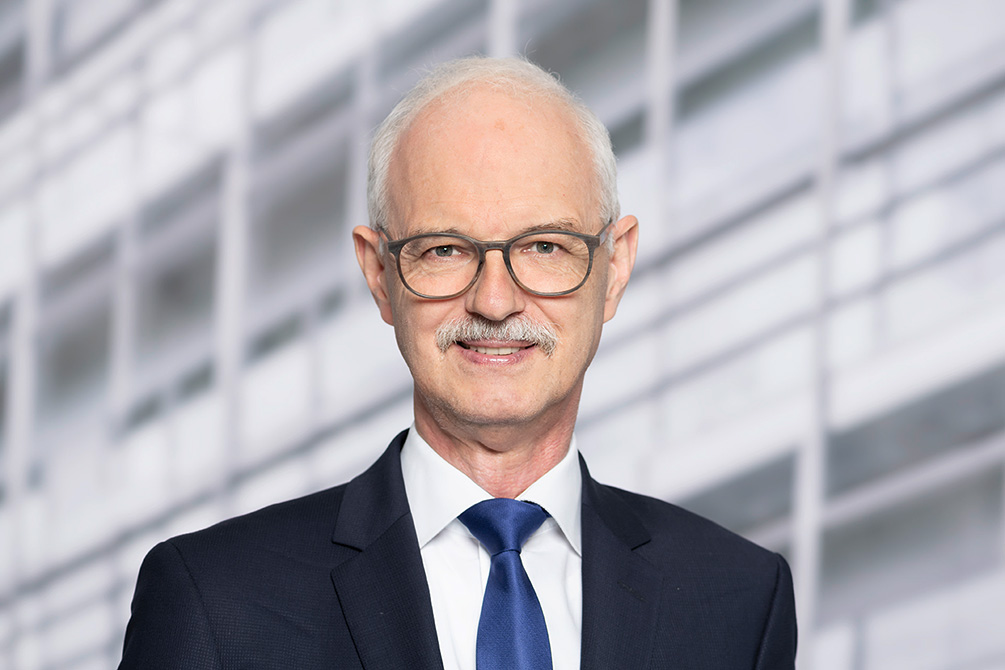
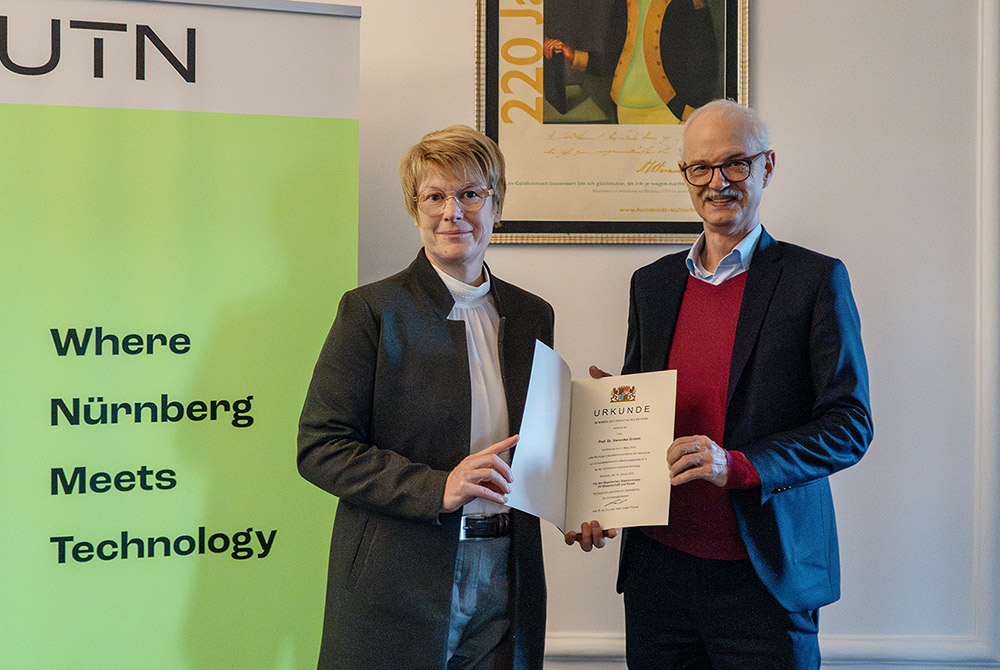
2023
On March 9, the design competition for two more buildings in the north of the campus area was completed. The winning concept convinced the jury in particular with its clear urban planning decision to situate the two buildings differently.
On April 1, Prof. Dr. Alexander Martin completed the Founding Presidium as Founding Vice President for Research, Innovation and Entrepreneurship. Also on April 1, Prof. Dr. Gyburg Uhlmann accepted the appointment as Professor of classical philology at the UTN. As Founding Chair, she will establish the Department of Liberal Arts and Sciences.
The second campus festival of UTN takes place on July 14. It marks two milestones in the development of the University of Technology Nuremberg: On the one hand, the construction ceremony for the first building on the campus take place in the presence of Minister President Dr. Markus Söder. On the other hand, the young university inaugurate the so-called Experience Cubes, which will bring the concept of UTN to life on campus.
October 16 marks the start of the first degree program at UTN: A week prior to the start of the courses, Lord Mayor Marcus König and Founding President Prof. Dr. Dr. h.c. mult. Hans Jürgen Prömel, welcome the first eight students to Nuremberg.
In November, Founding President Prof. Dr. Dr. h.c. mult. Hans Jürgen Prömel signs a Memorandum of Understanding with Georgia Institute of Technology (Georgia Tech). In this agreement, the participating institutions pledge to collaborate on the development of specific research initiatives, training programs and funding arrangements.
On December 5, Minister-President of Bavaria Dr. Markus Söder announces that UTN will have an AI focus in the future.
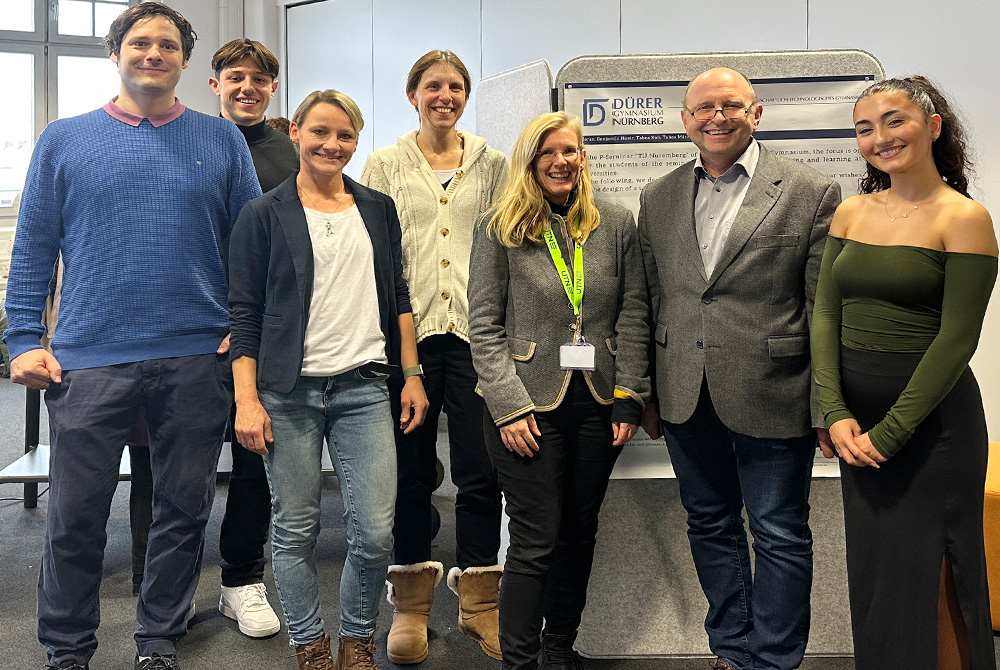
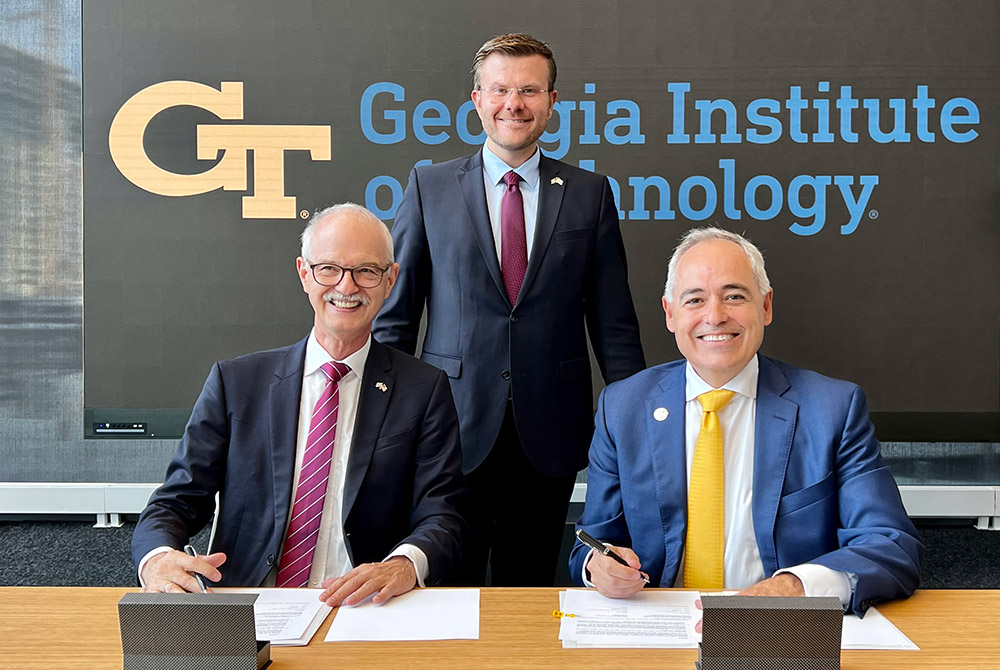

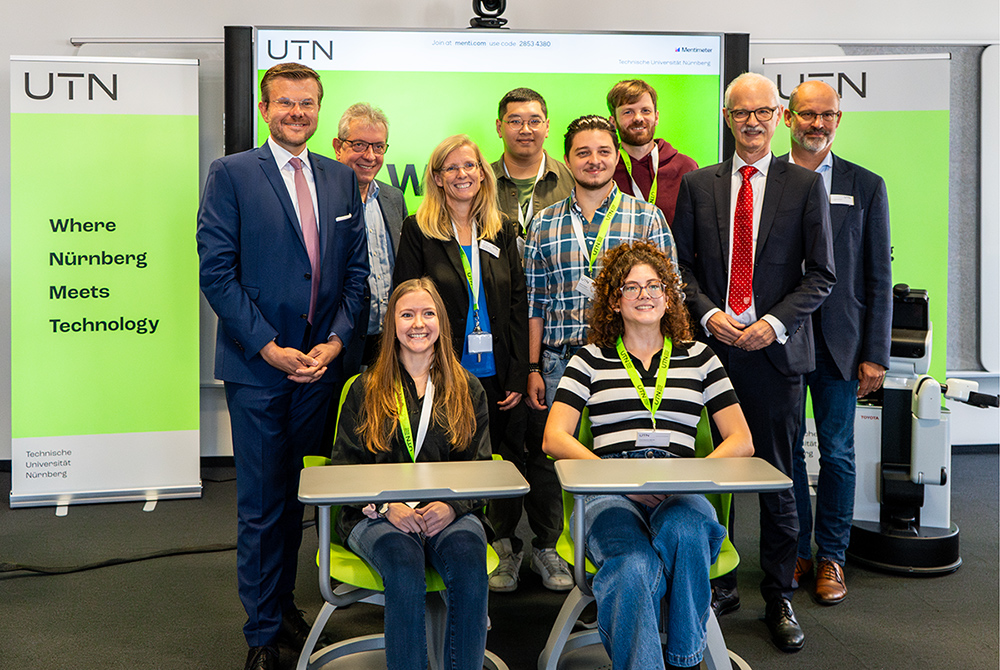
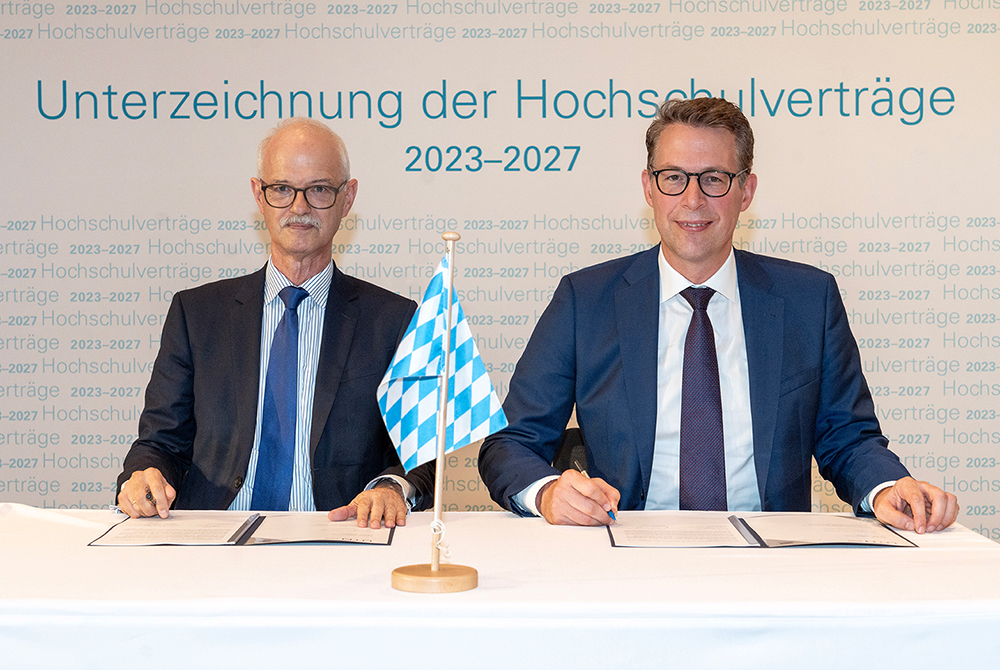
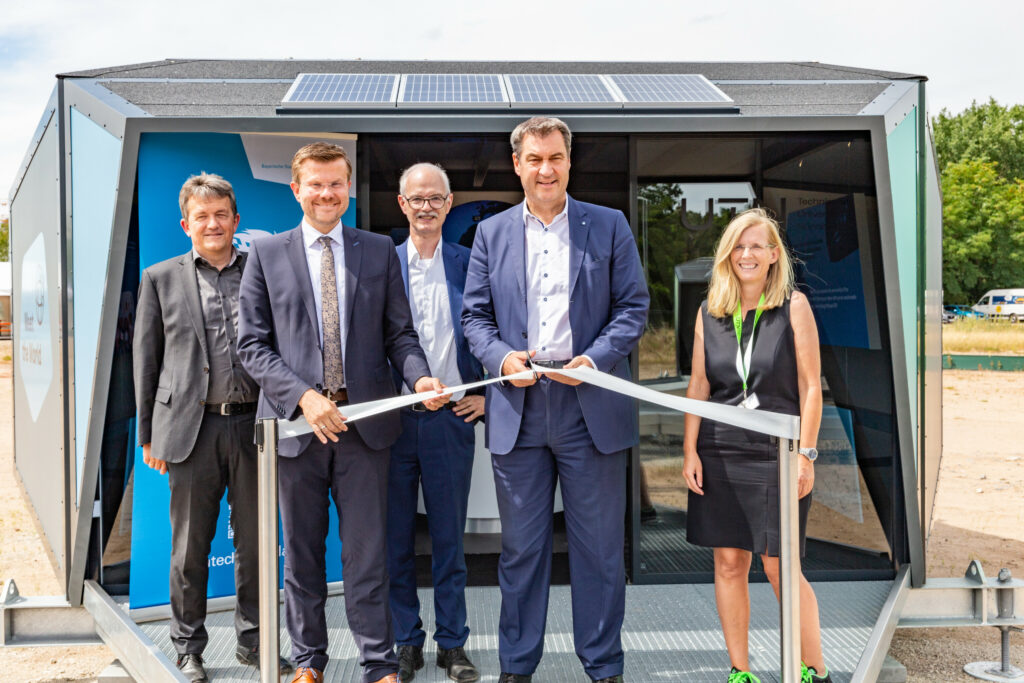
Dr. Markus Söder and Founding Vice President Prof. Isa Jahnke open the Experience Cubes (Copyright: UTN/Dieter Zeitler)
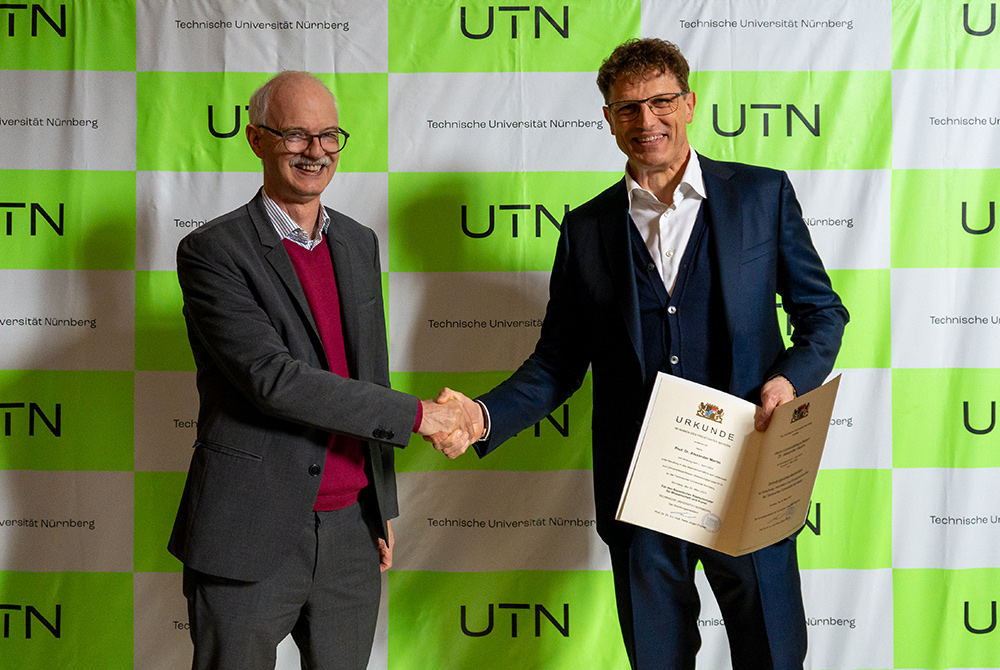
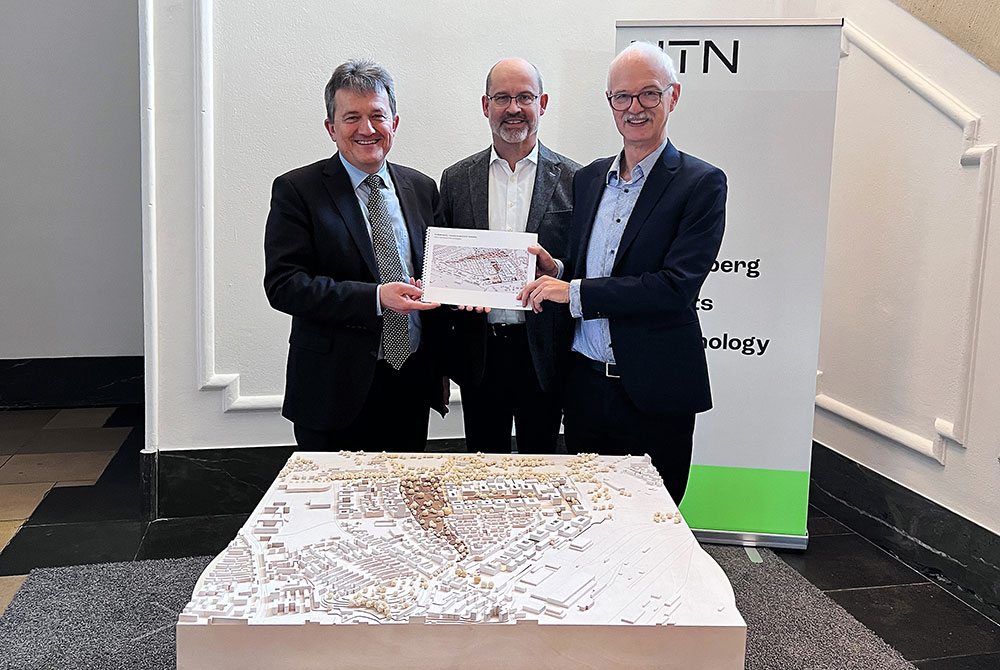
2022
On January 1, Professor Dr. Isa Jahnke is granted the professorship of Information Science & Learning Technologies, besides being appointed first Vice President. As Founding Vice President for Academic and International Affairs, she will complement the existing Executive Board and develop and enhance digital teaching and learning with modern technologies and instructional designs.
On February 1, Prof. Dr. Wolfram Burgard takes office as Founding Chair of the Department of Engineering and Professor of Artificial Intelligence and Robotics. The University of Technology Nuremberg has established its first Department.
Under the heading “Meet the University”, the University of Technology Nuremberg celebrates its first campus festival on July 22. The celebration takes place on the construction site covering 37 hectares in Nuremberg’s new quarters of Lichtenreuth. In the opening ceremony, the new corporate design is presented.
Mid November, Minister-President of Bavaria Dr. Markus Söder, Secretary of State Markus Blume, Secretary of State Christian Bernreiter, Lord Mayor Marcus König, Mr. Michael Lueb, Division Manager of the State Building Authority, and Founding President Prof. Dr. Dr. h.c. mult. Hans Jürgen Prömel laid the foundation stone for the first building on the campus.
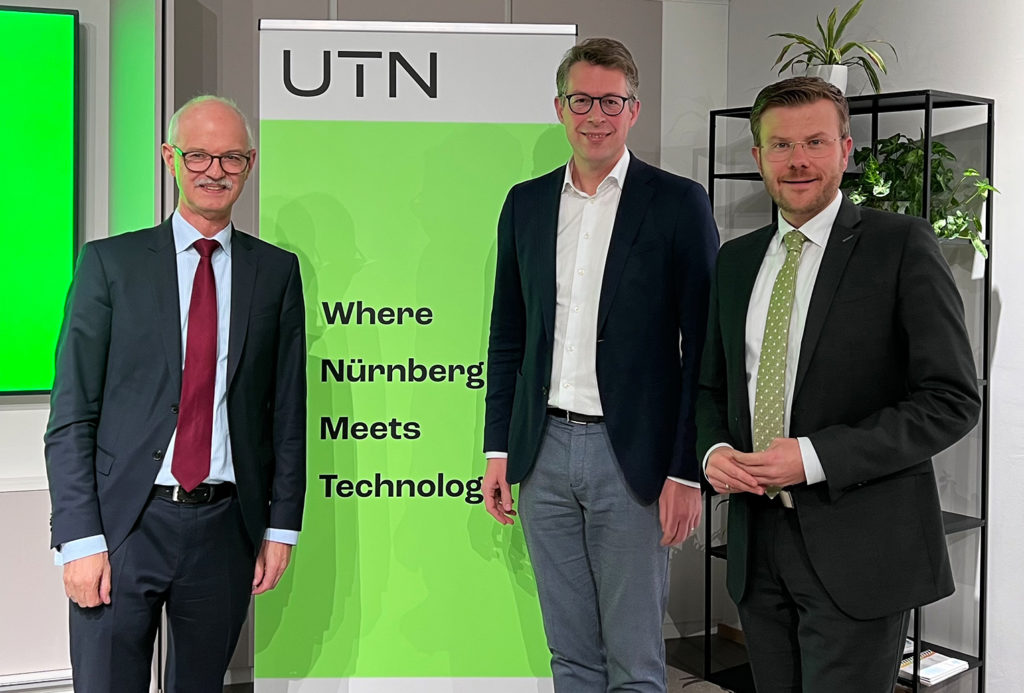
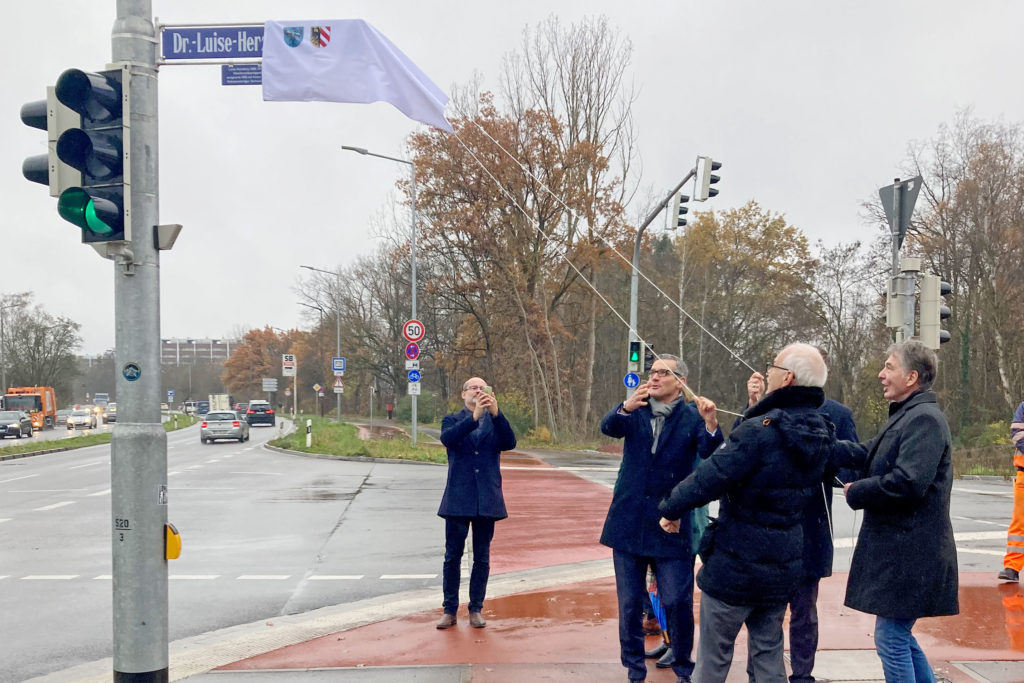
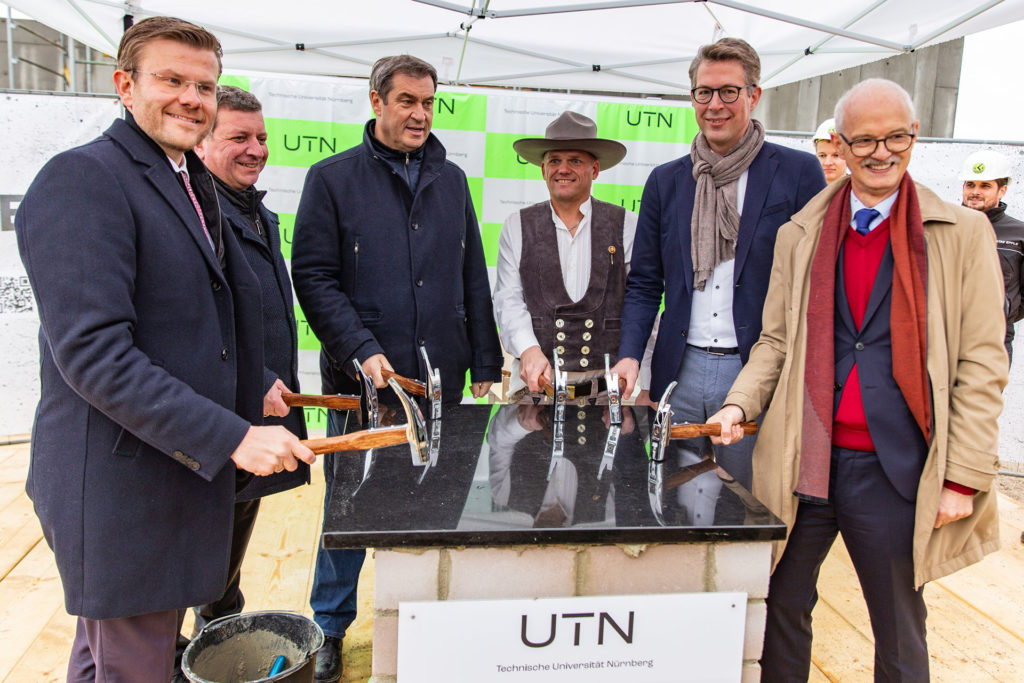
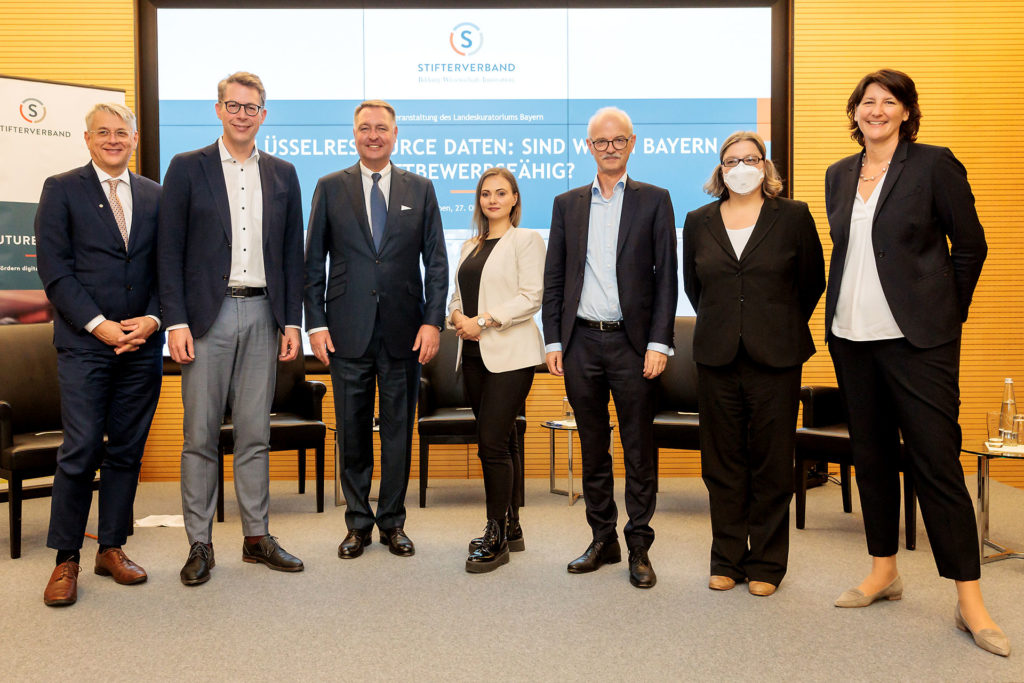
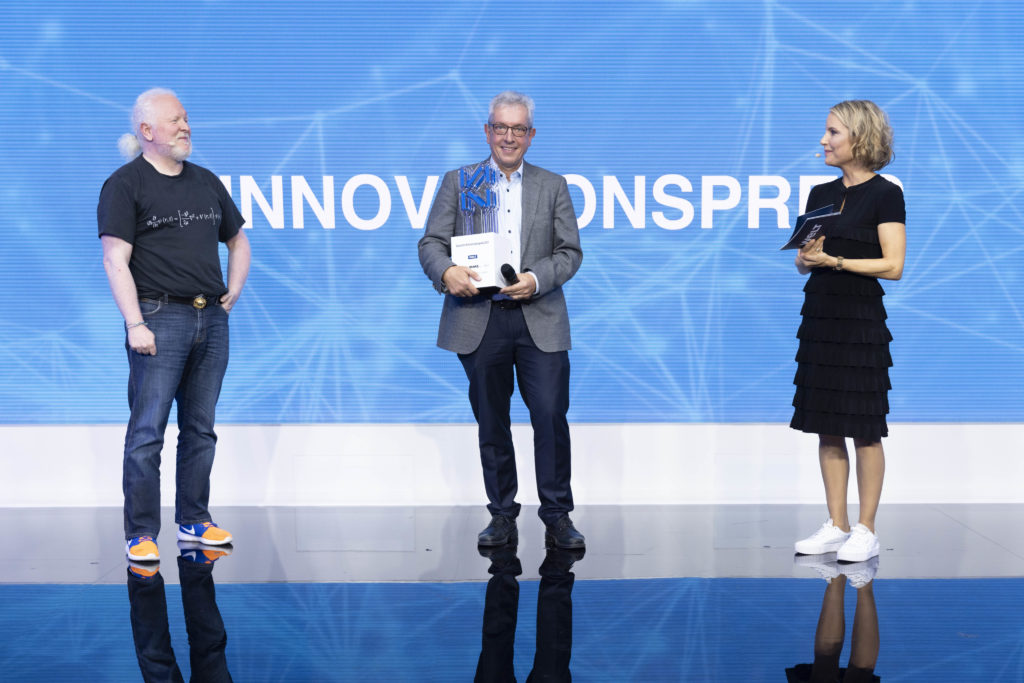
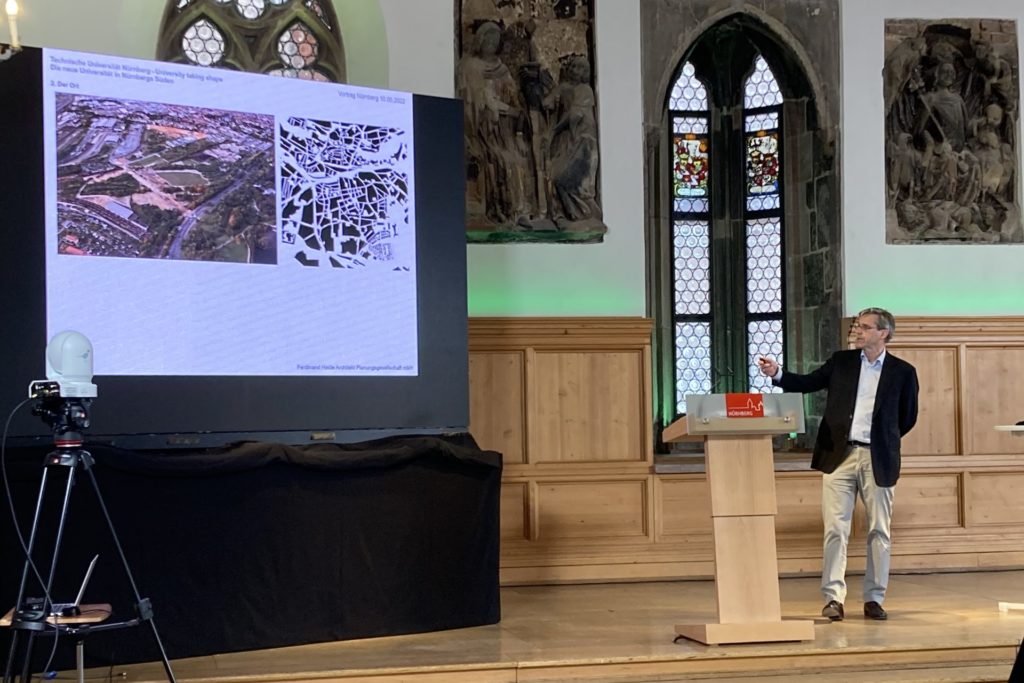
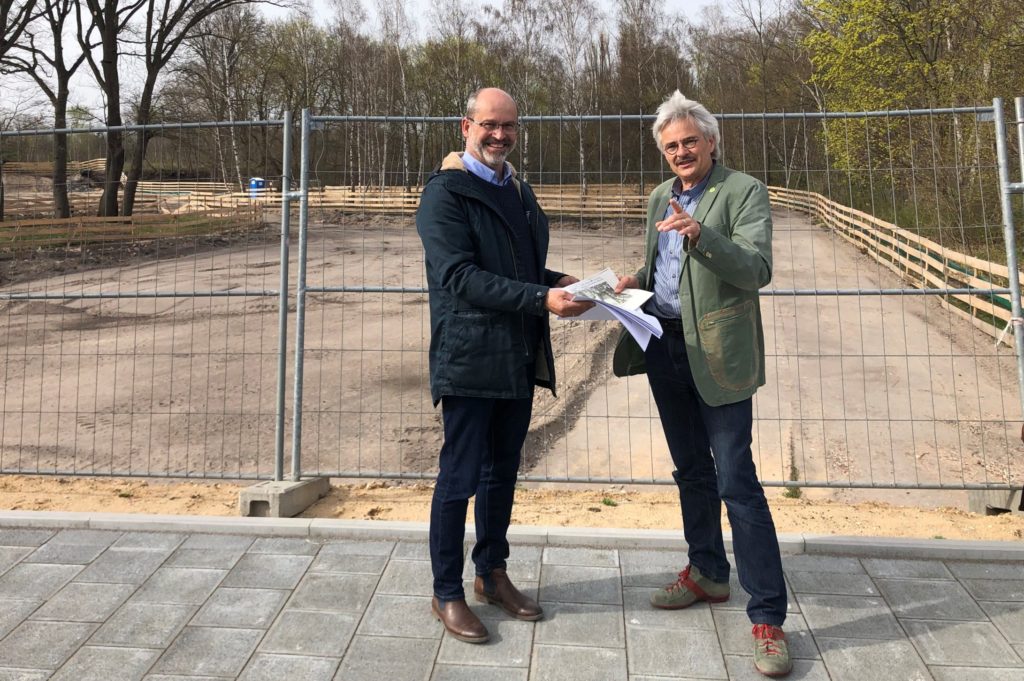
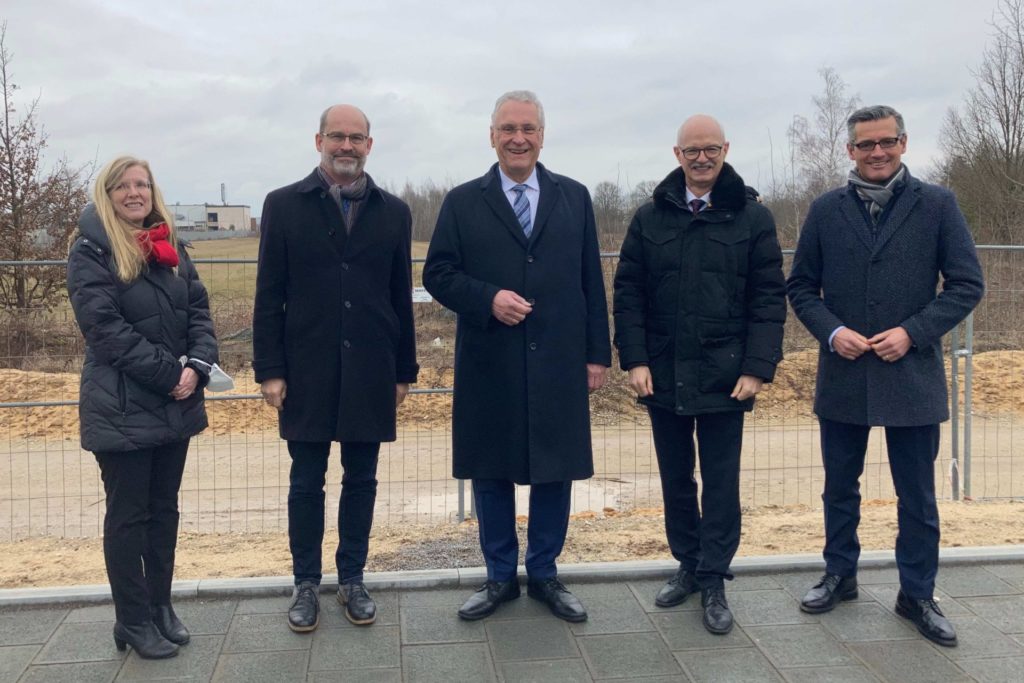
2021
The tenth state-run university in Bavaria has been officially set up on January 1. Dr. Markus Zanner is appointed Kanzler.
On March 1, Prof. Dr. Dr. h.c. mult. Hans Jürgen Prömel takes up office as Founding President.
In April 2021, the winner design is selected for the structural and urban design framework. It was submitted by the team around Ferdinand Heide Architekten/TOPOS.
On August 27, the first groundbreaking ceremony takes place on the construction site on Brunecker Straße.
December 2021 sees the naming of the first street on the campus: As a name giver, the Nuremberg City Council selected the astrophysicist and mechanical engineer Dr. Luise Herzberg.
In the same month, a cooperation agreement is signed for a modular building for the Technische Hochschule Nürnberg to be erected on the campus of the University of Technology Nuremberg. The building will be ready to use early in 2024. After the initial period of 15 years covered by the agreement, the building will be transferred to the University of Technology Nuremberg.
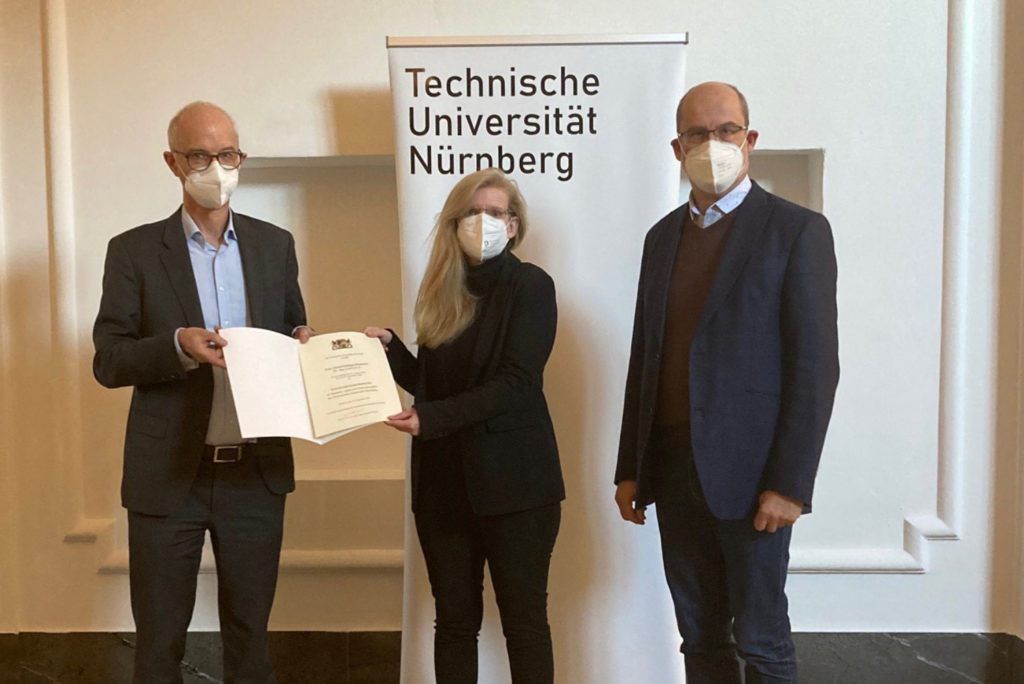
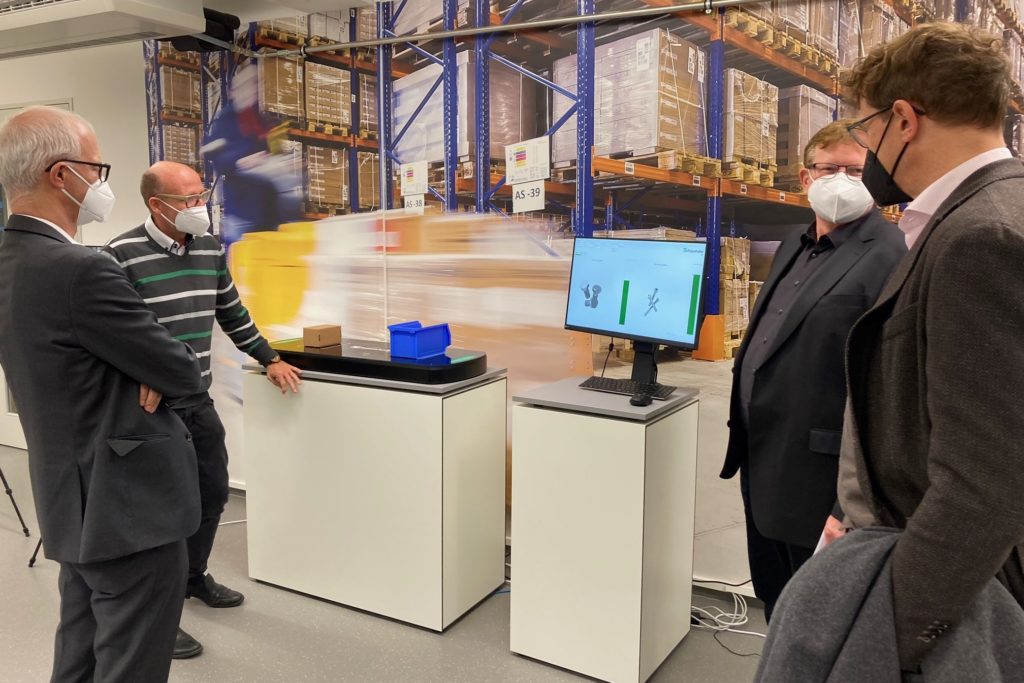
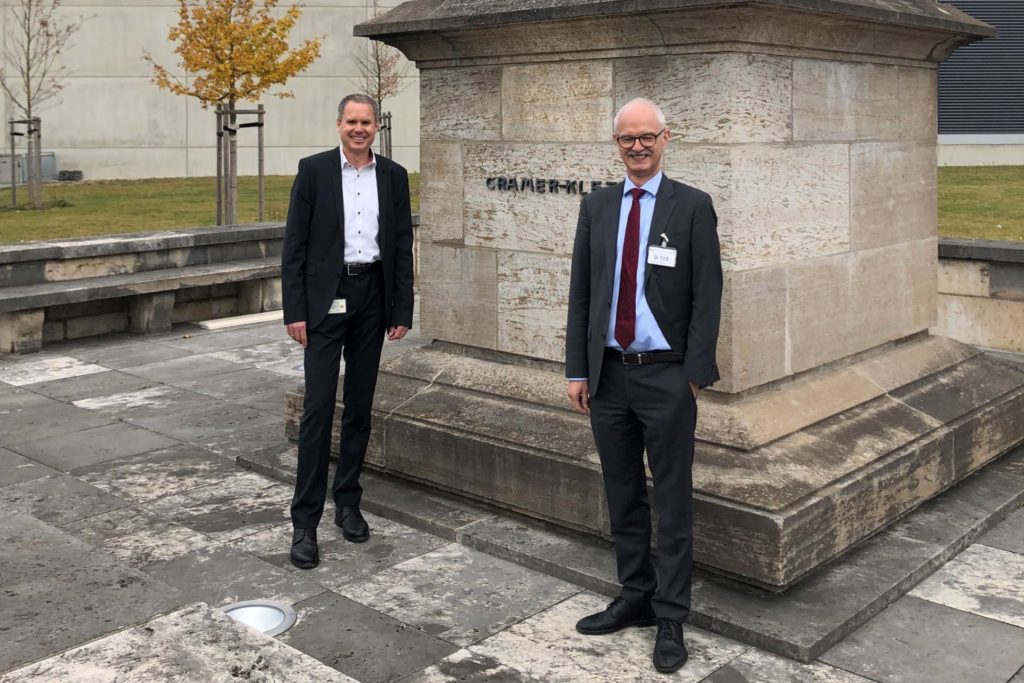
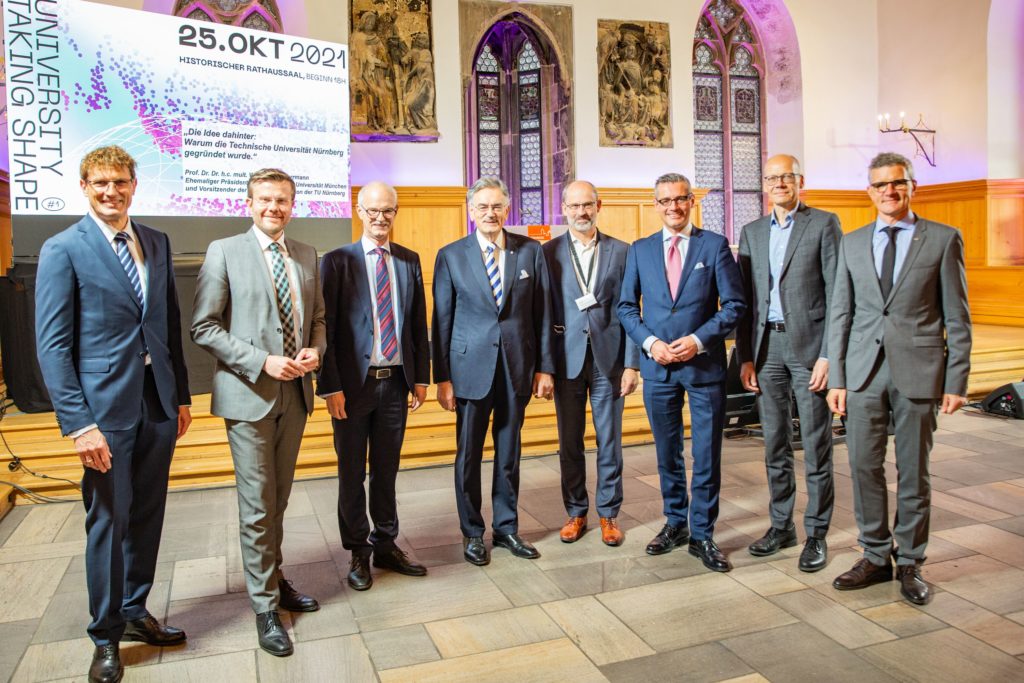
2020
With the positive evaluation of the concept by the Science Council early in 2020, the green light is given for the in-depth operative realization of the project, which has advanced at an incredible pace ever since.
The City of Nuremberg and the State of Bavaria jointly sign a declaration in March 2020, laying down the cornerstones for the urban development agreement to be signed.
In December 2020, the Bavarian Parliament passes the “Act on the Establishment of the University of Technology Nuremberg”, thus paving the way for the establishment of the new university starting on January 1, 2021. On the same date, the development regulation comes into force which forms the statutory framework for the first few years.
2019
The year marks the beginning of planning the urban structures and the first building for the location on Brunecker Straße. At the same time, preliminary action is taken to prepare the site – also regarding a protection of species evaluation and developing work of the land plot.
2018
In October 2018, the Bavarian Government presents the “Concept for the Foundation of the University of Technology Nuremberg”, drawn up by the Structural Commission, to the Science Council for review.
In the south of Nuremberg on Brunecker Straße, the State of Bavaria purchases an area covering 37.5 hectares for the new campus university in direct urban surroundings.
2017
The Bavarian Government passes a trailblazing resolution to establish a new university in Nuremberg, which, upon overall completion, is to provide up to 6,000 students.
The concept is drawn up by a Structural Commission comprising eminent experts under the chairmanship of the President of the Technical University of Munich at the time, Prof. Dr. Wolfgang A. Herrmann.
